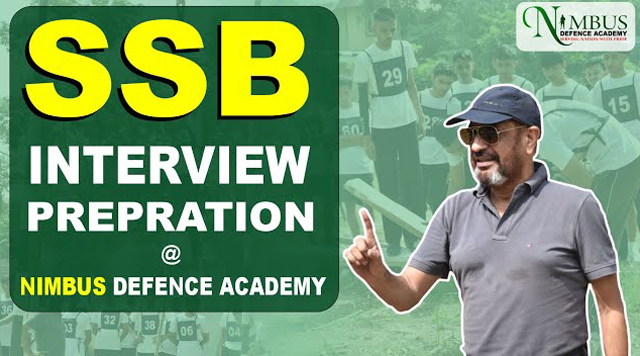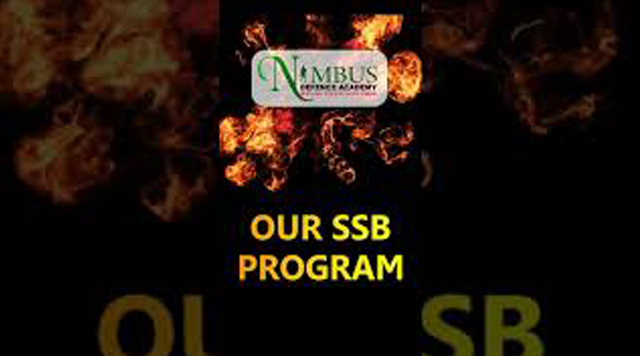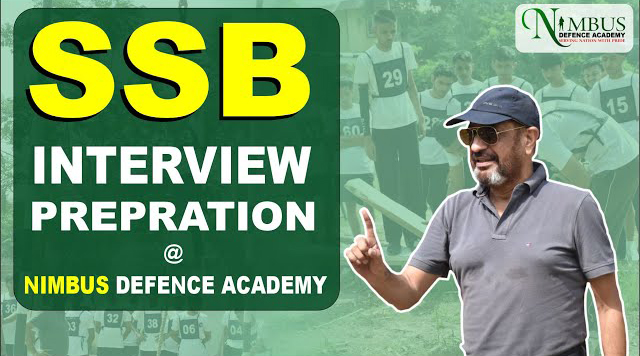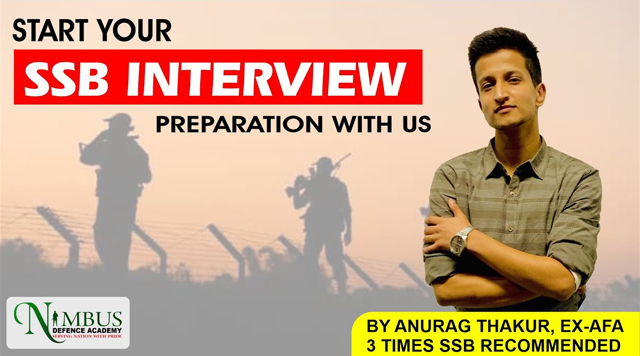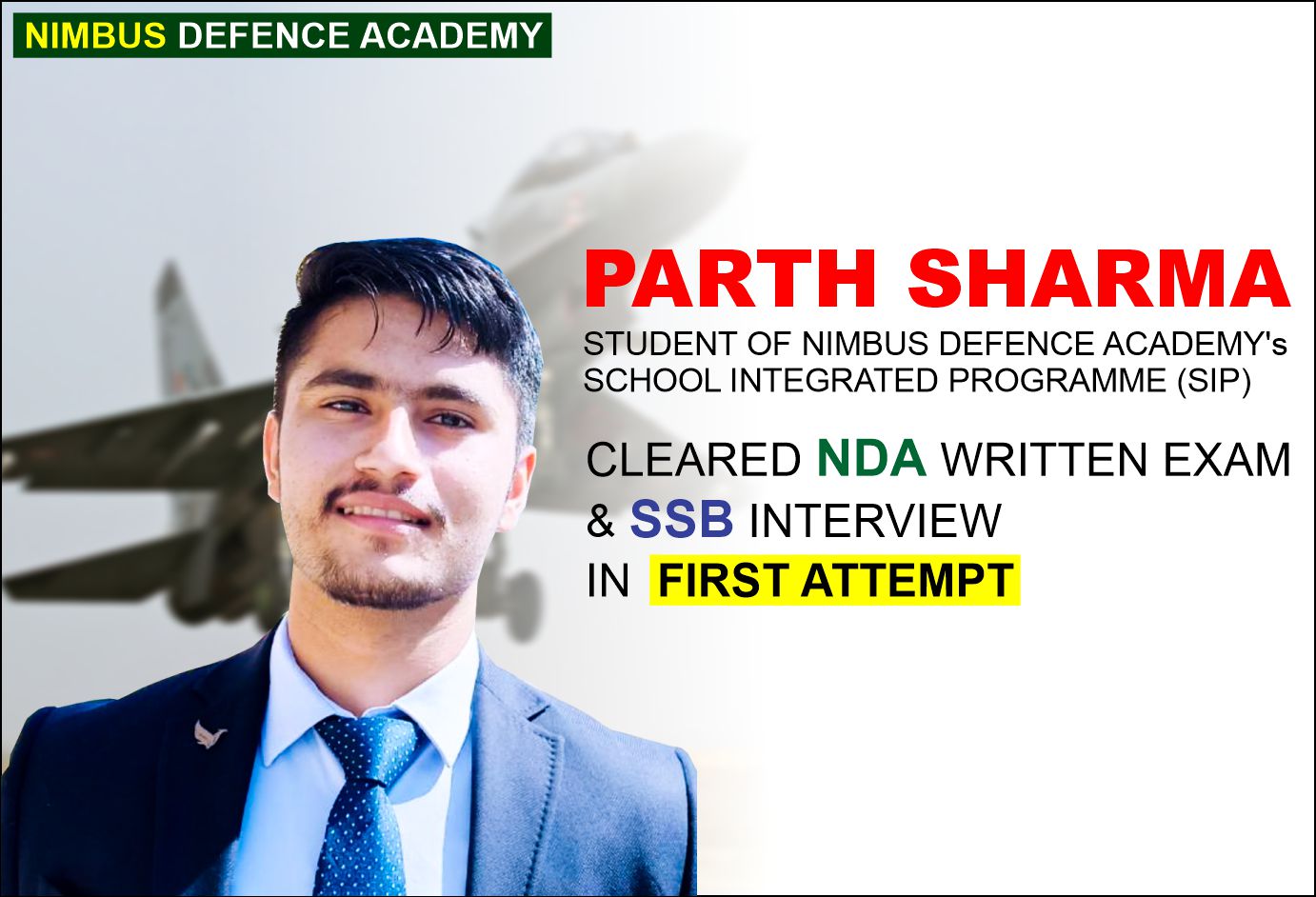
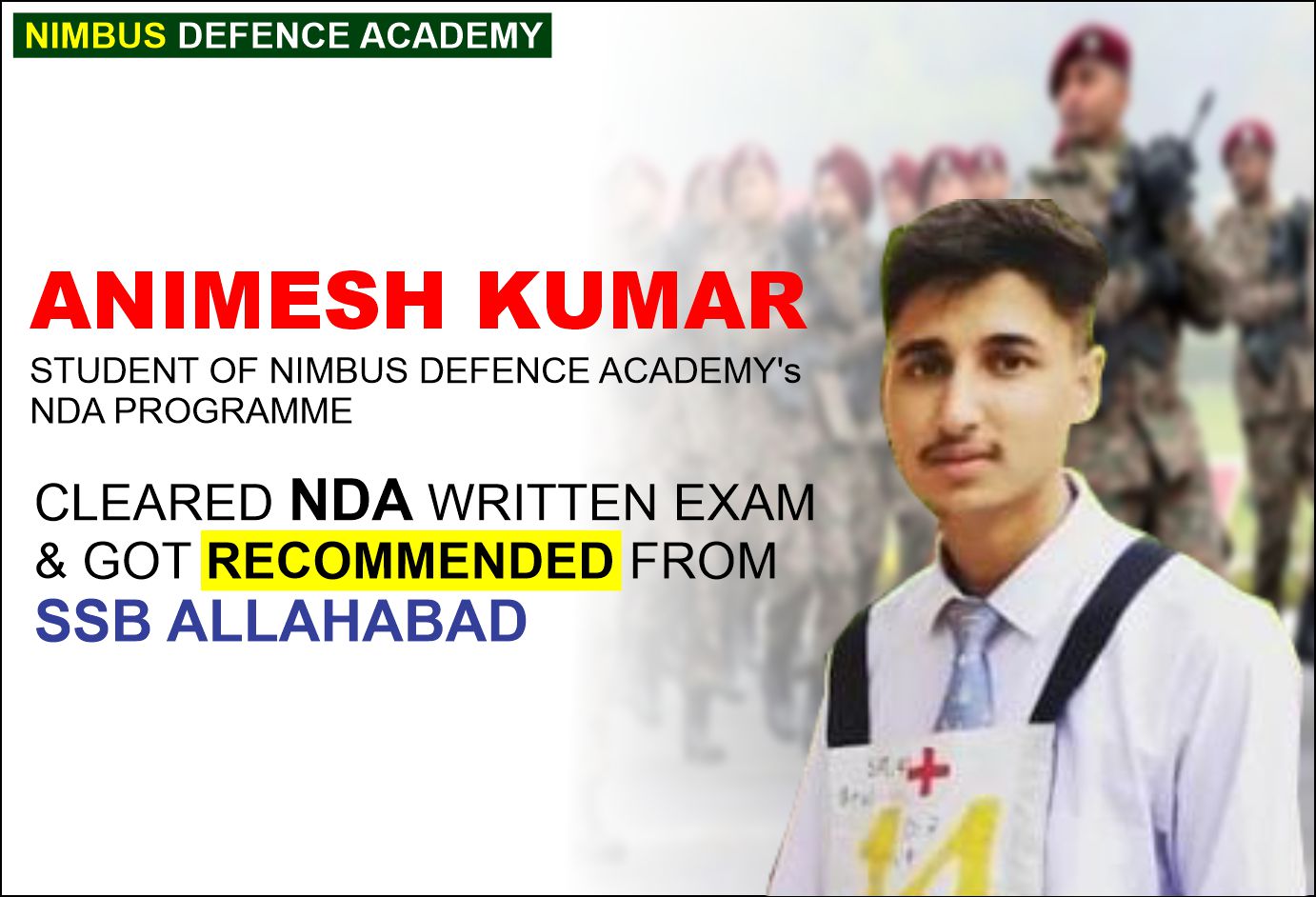
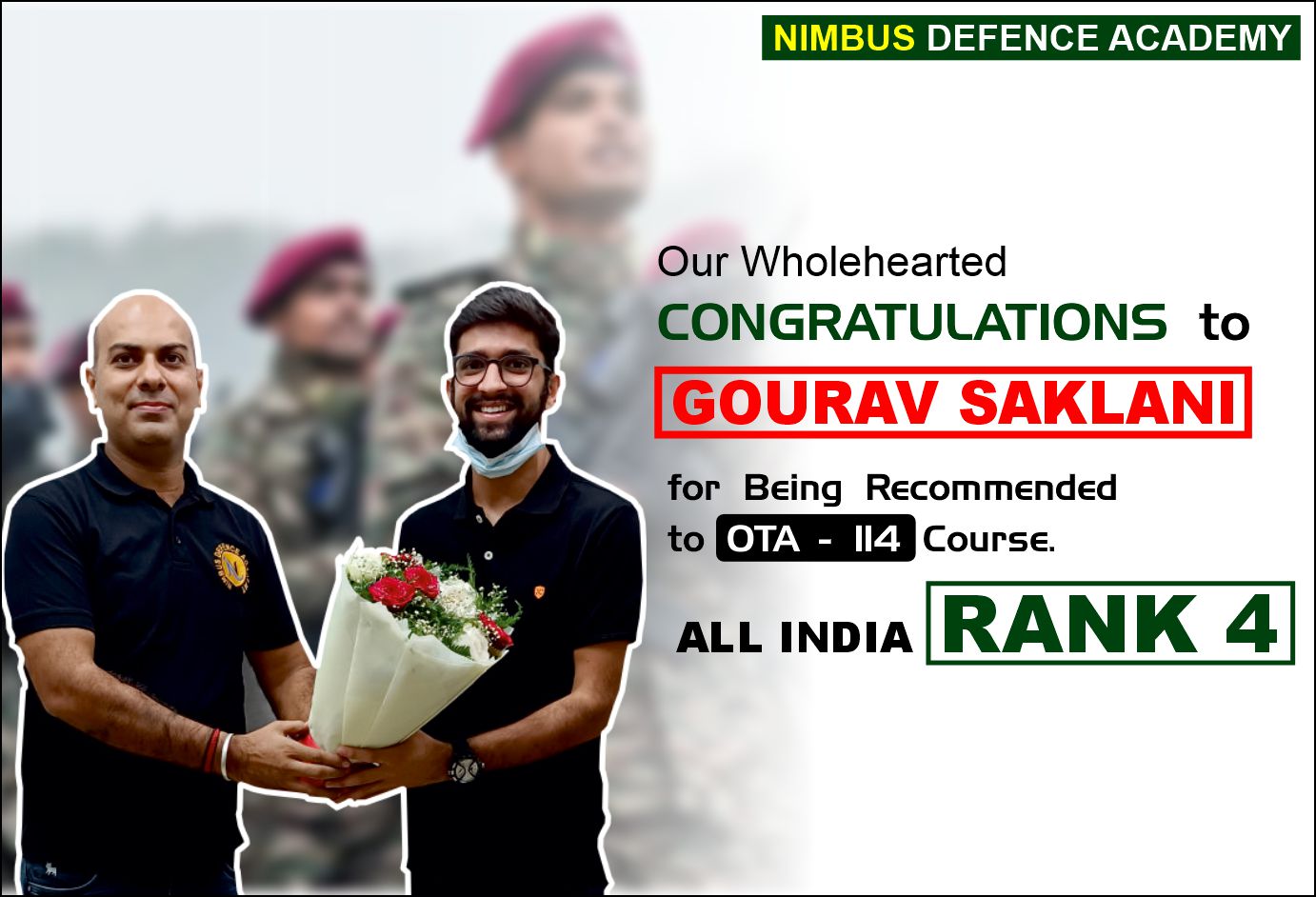
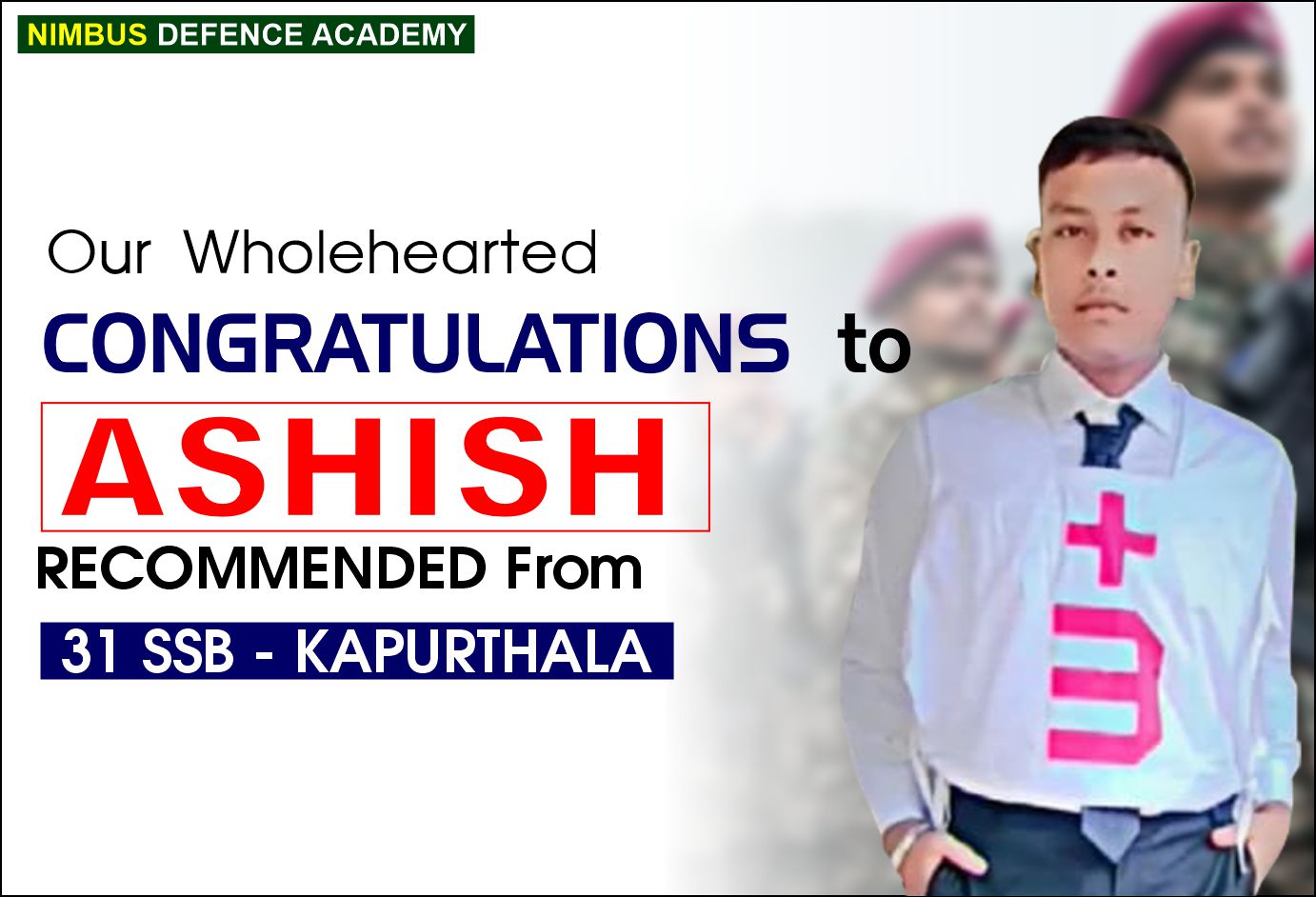
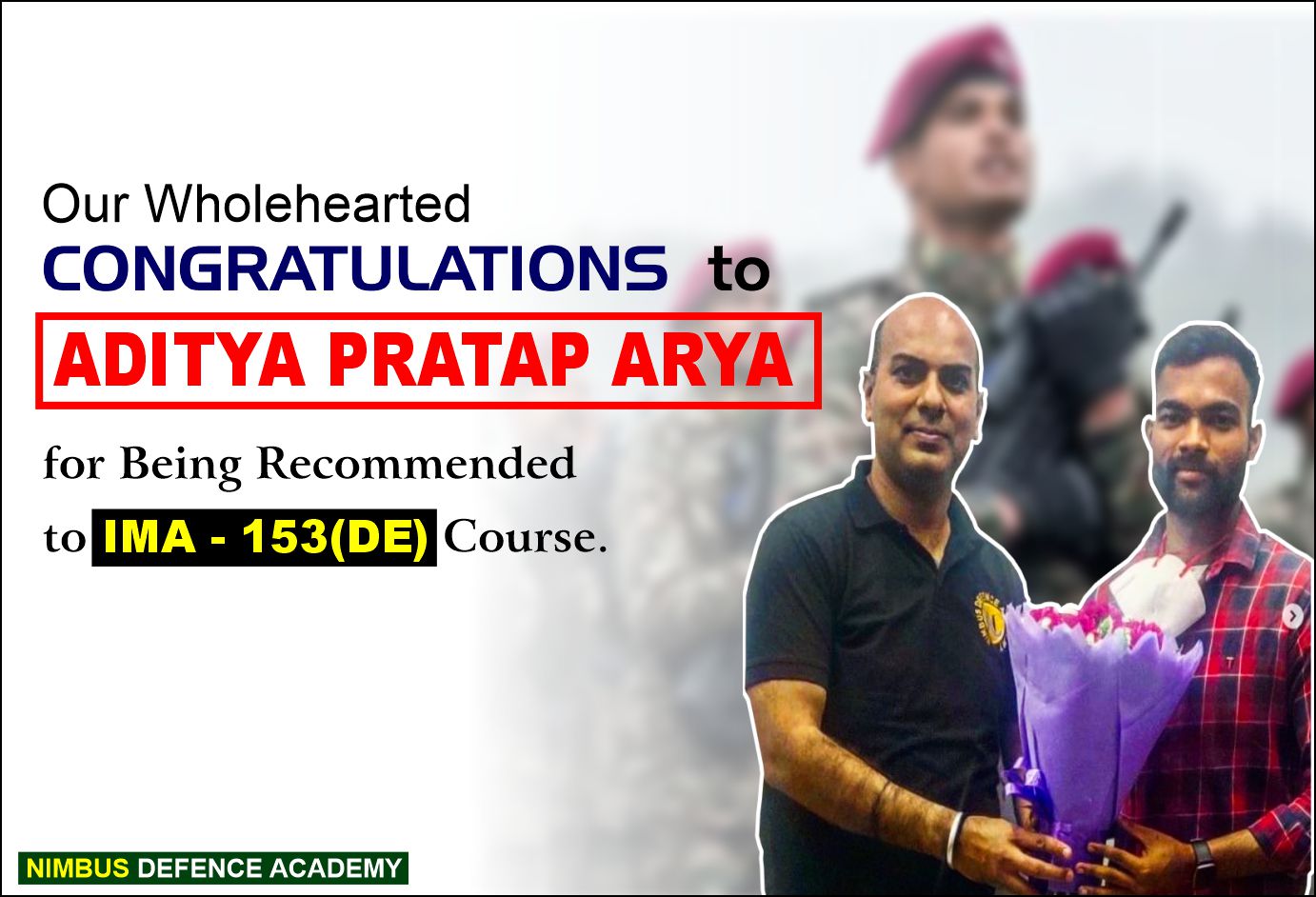
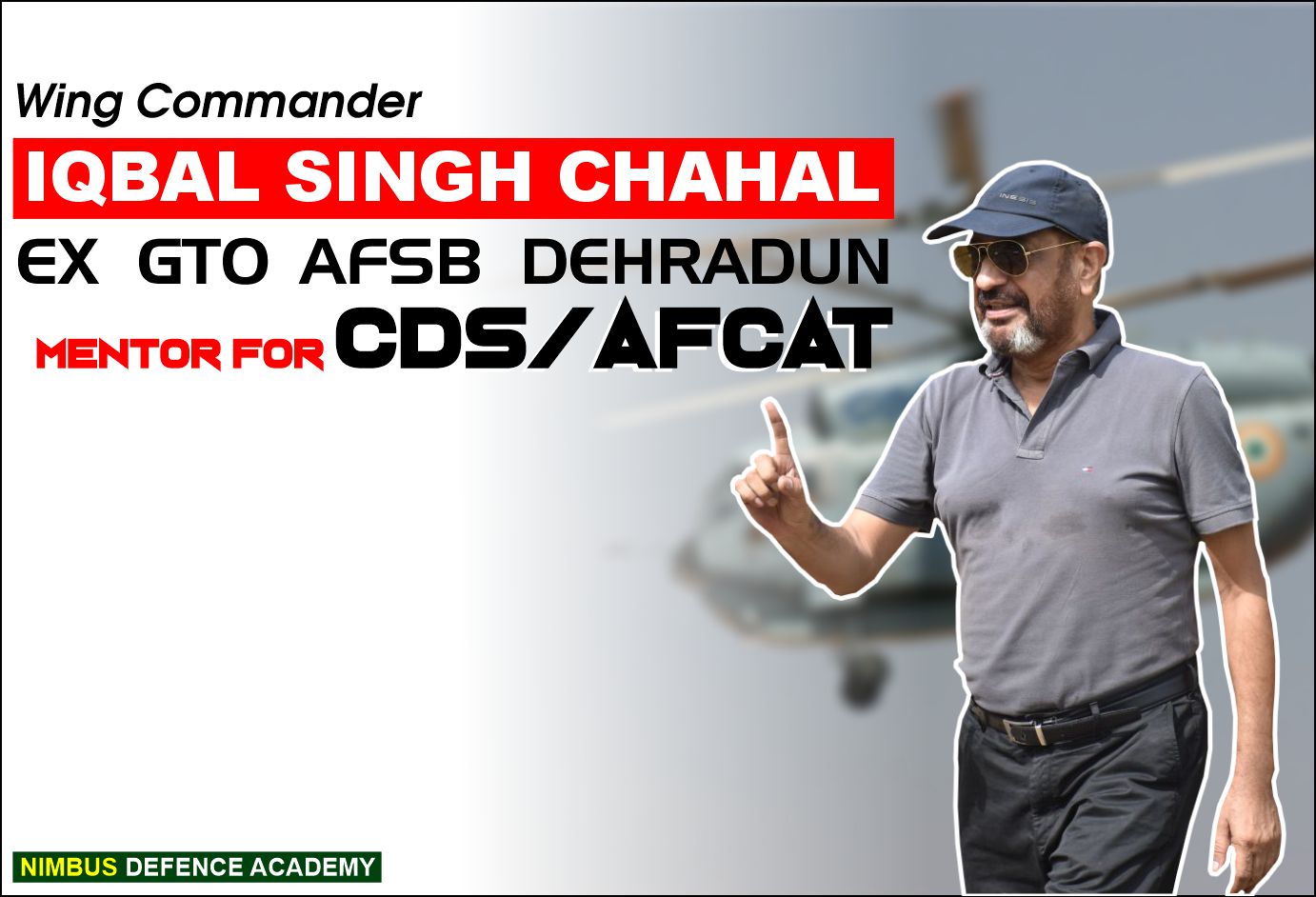
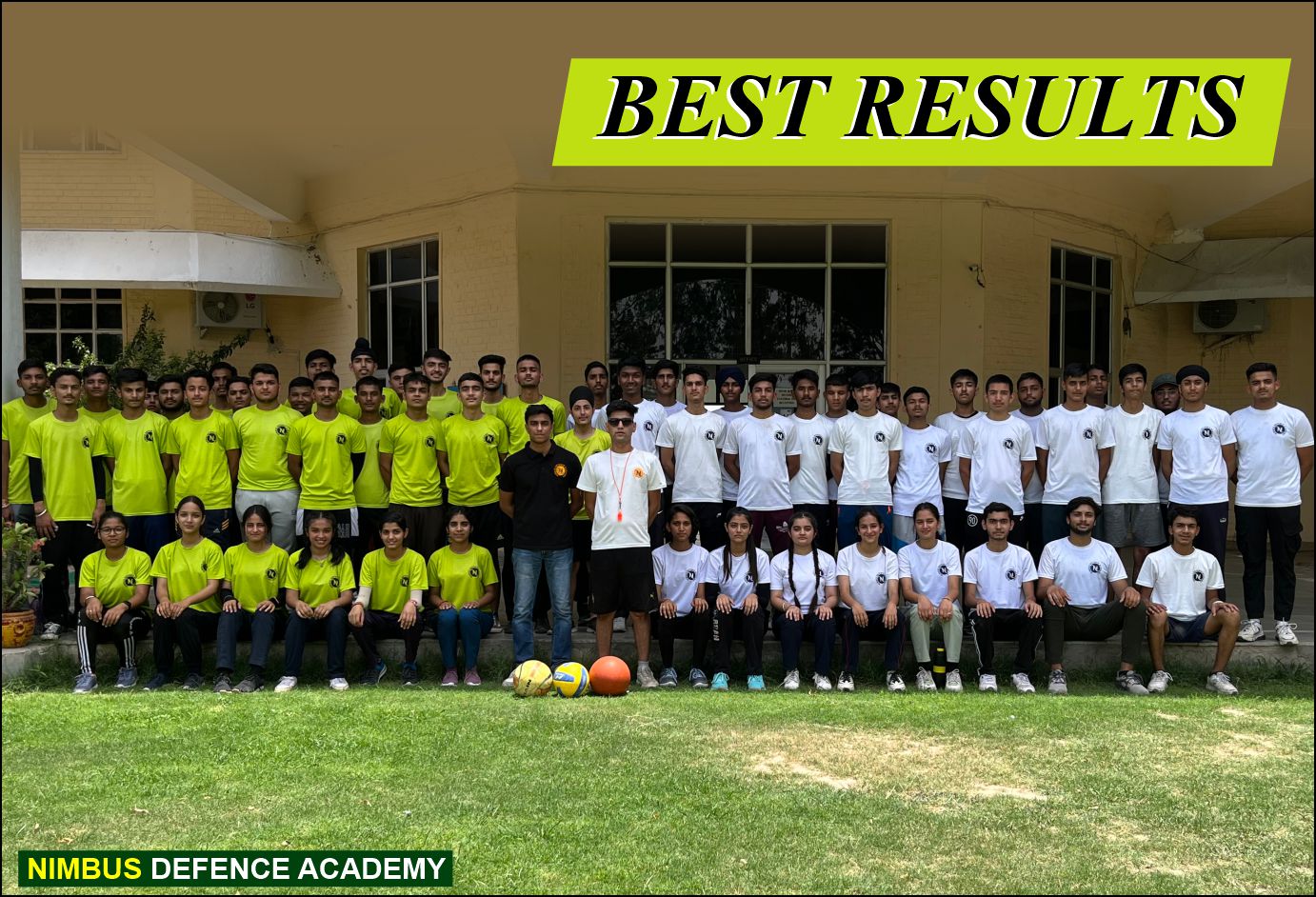
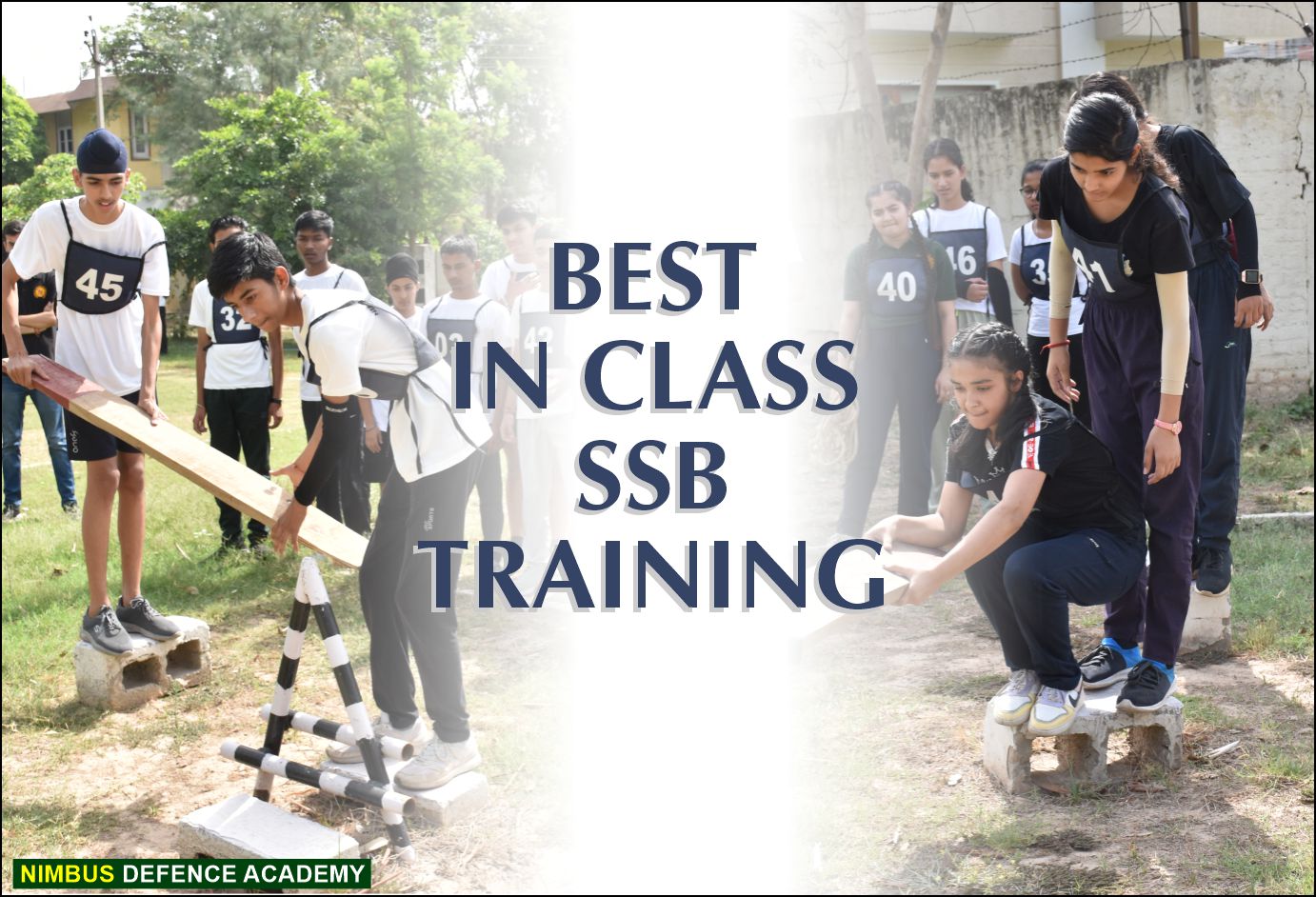
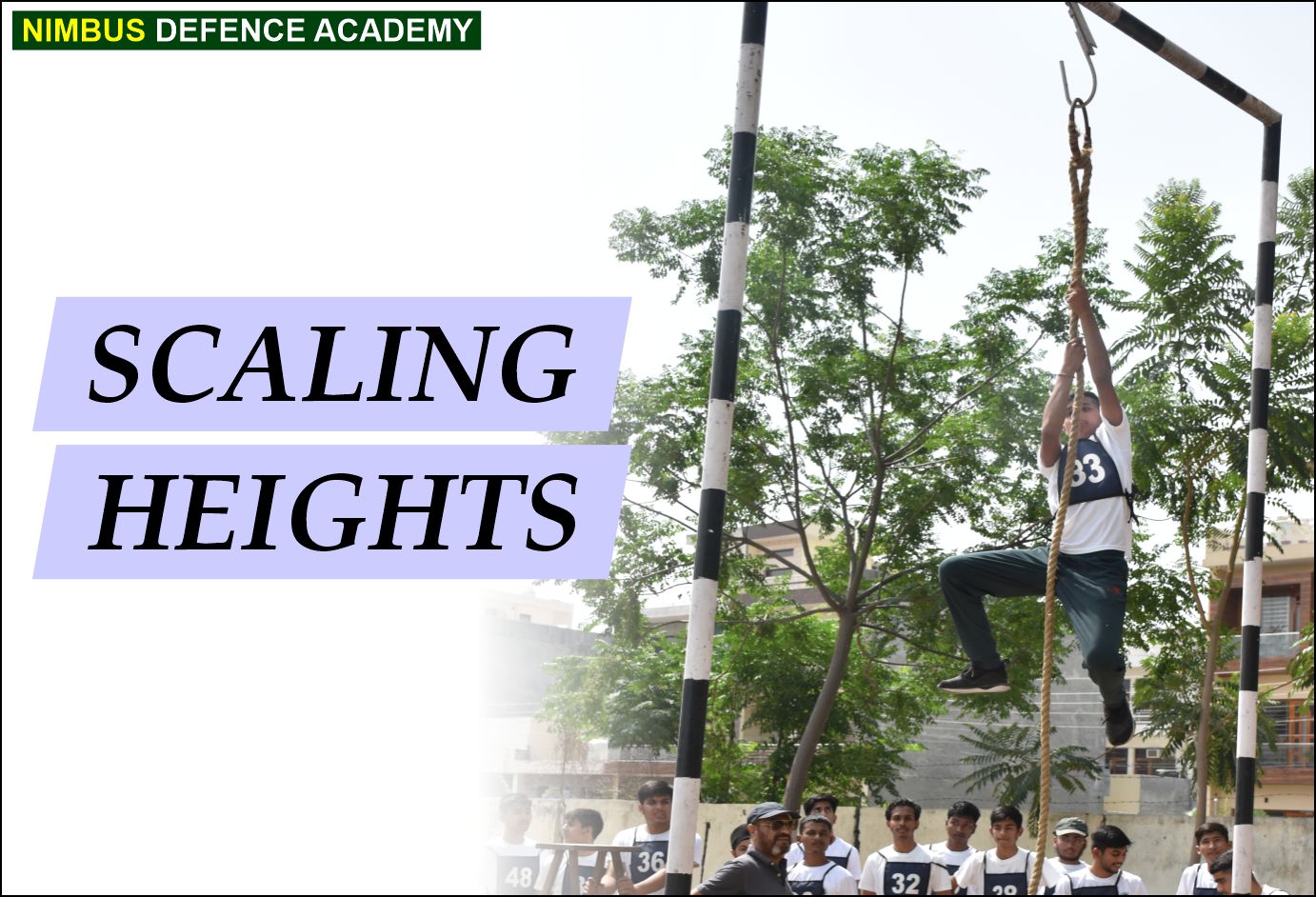
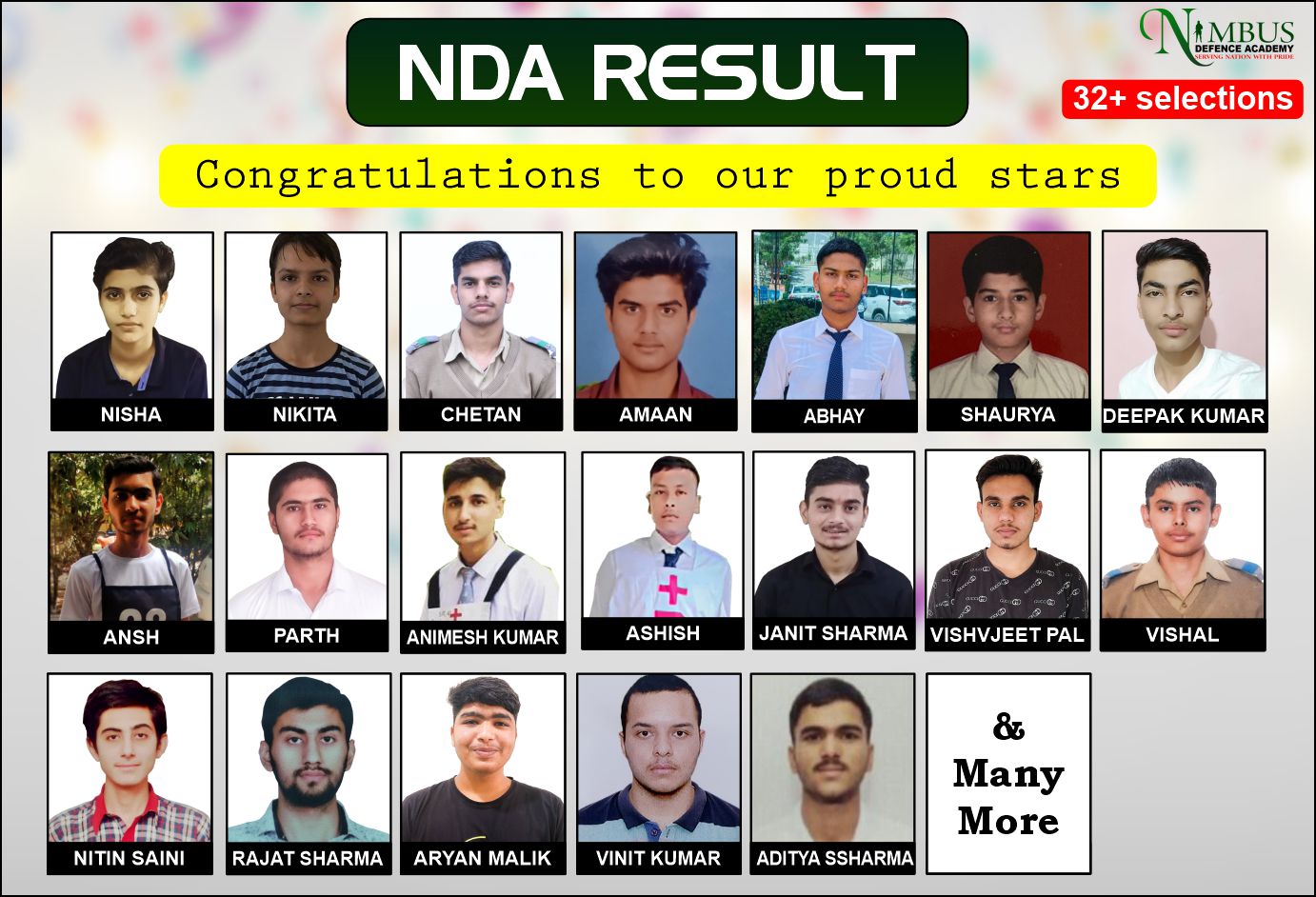
REGISTER NOW
ABOUT SSB INTERVIEW & SSB Interview Coaching
Nimbus Videos
Nimbus Gallery
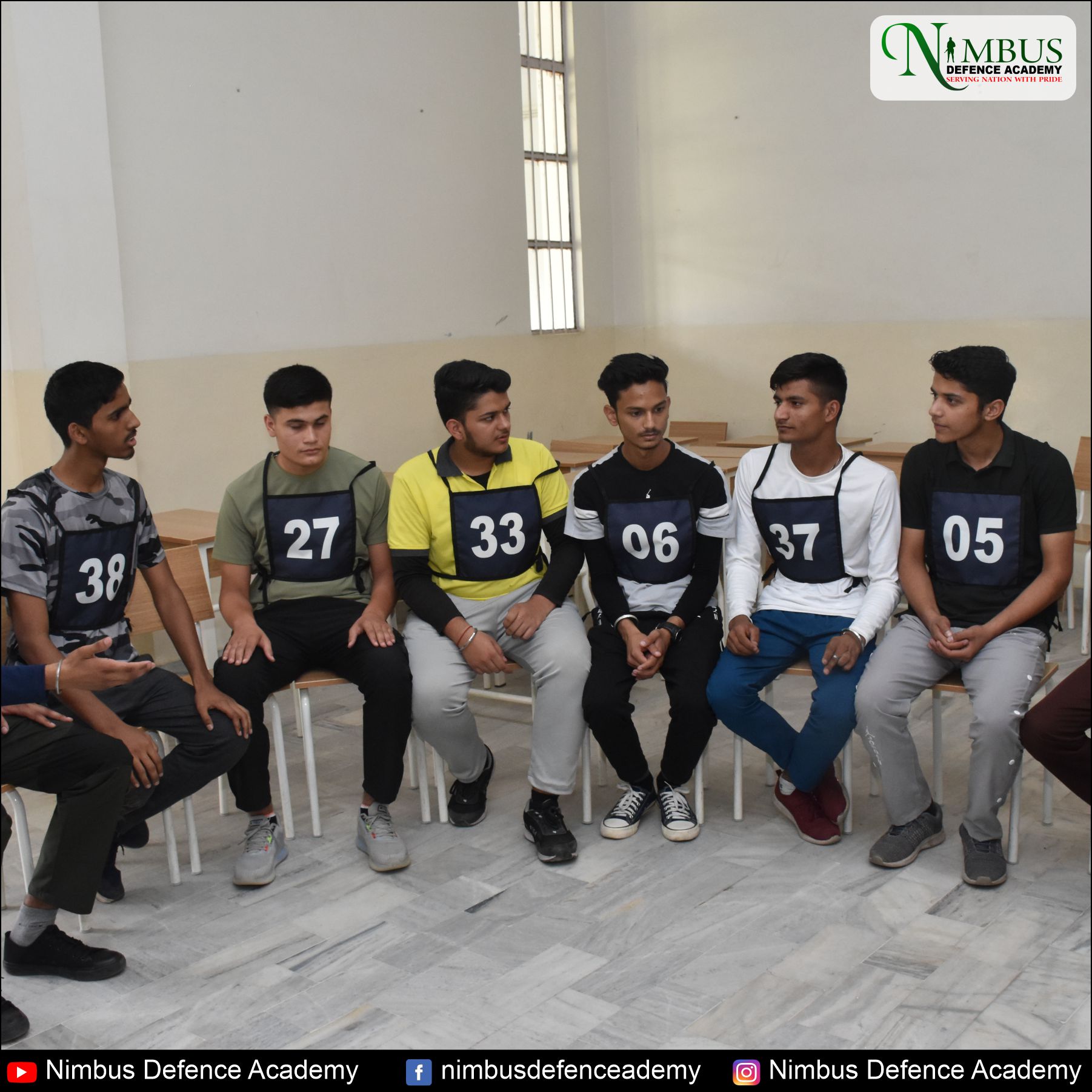
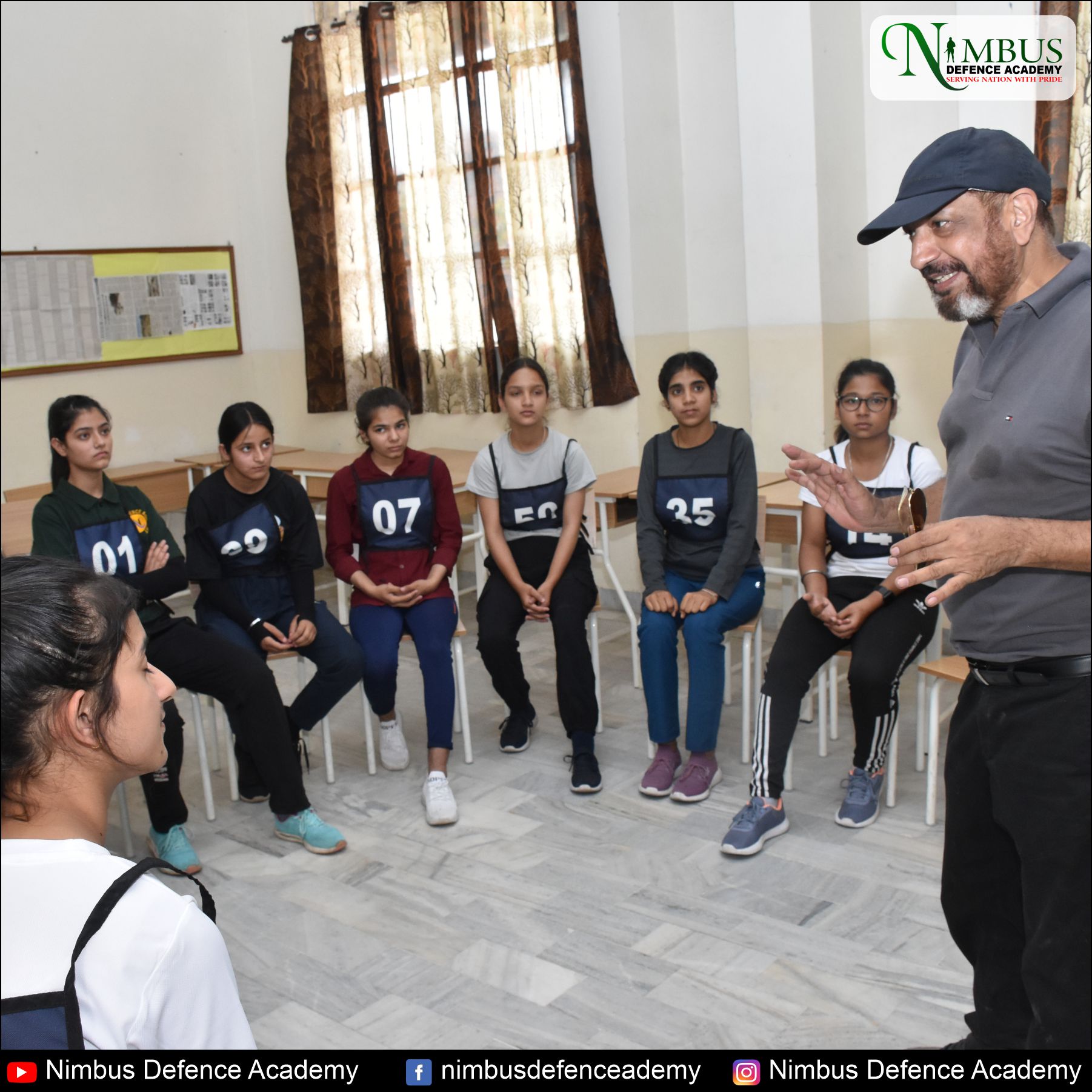
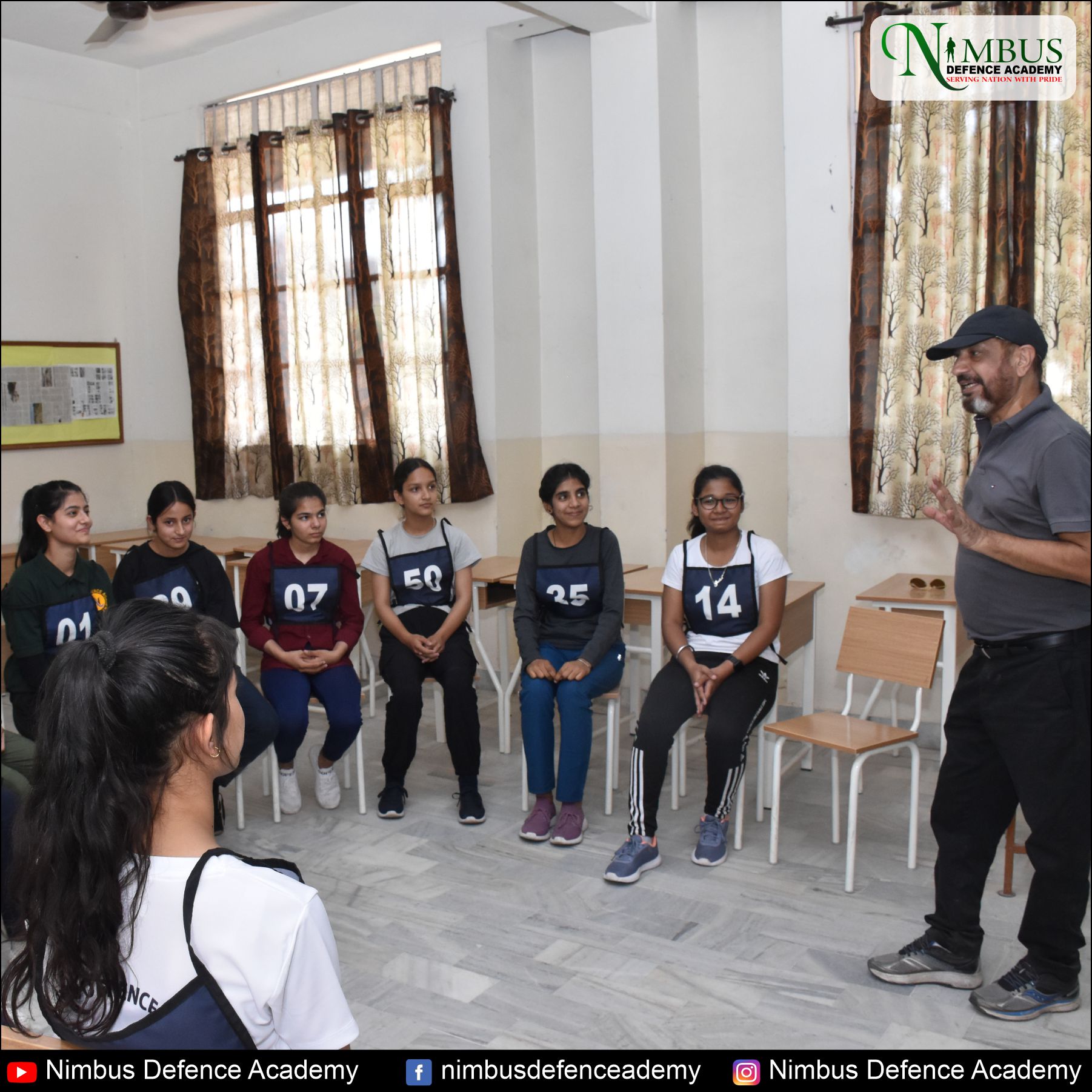
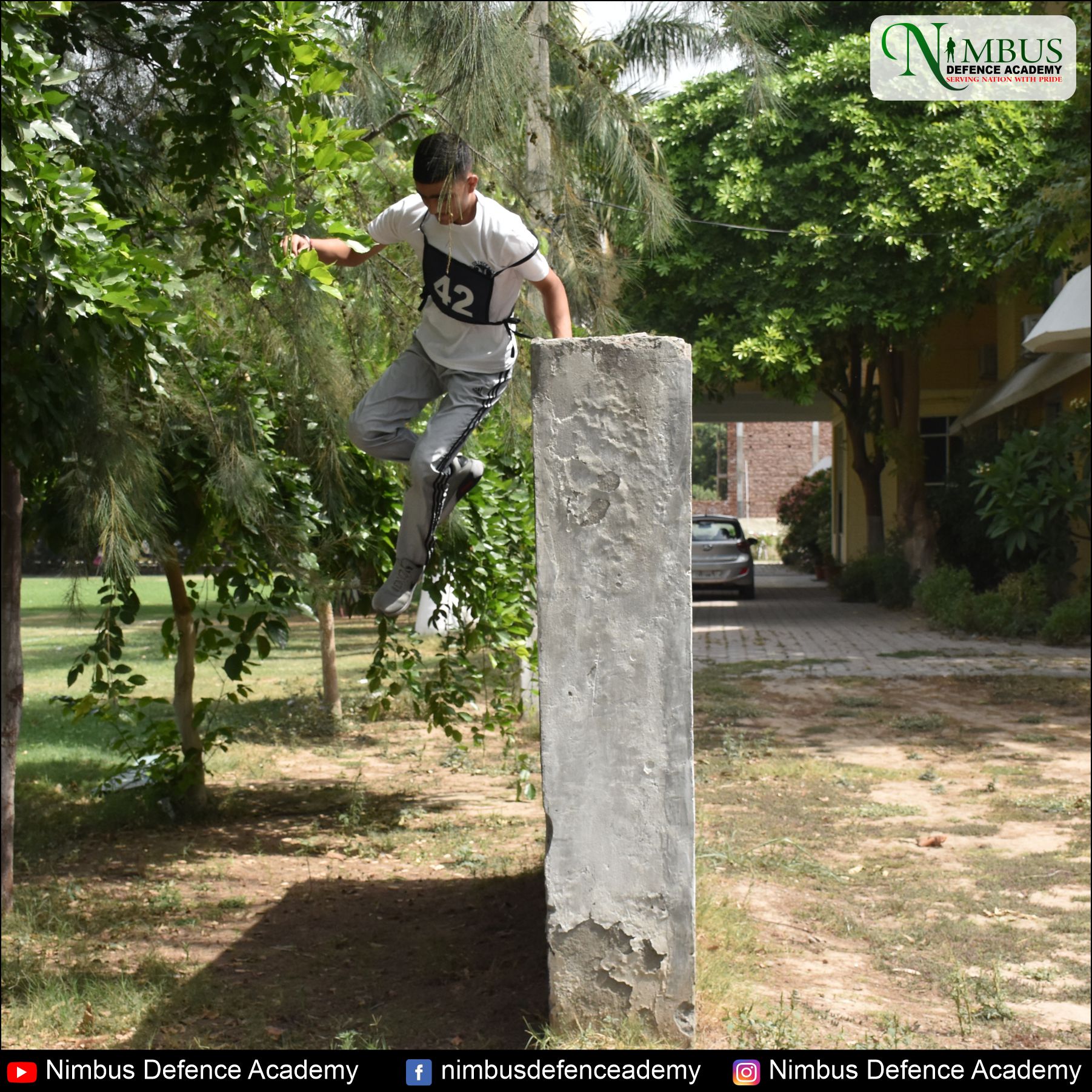
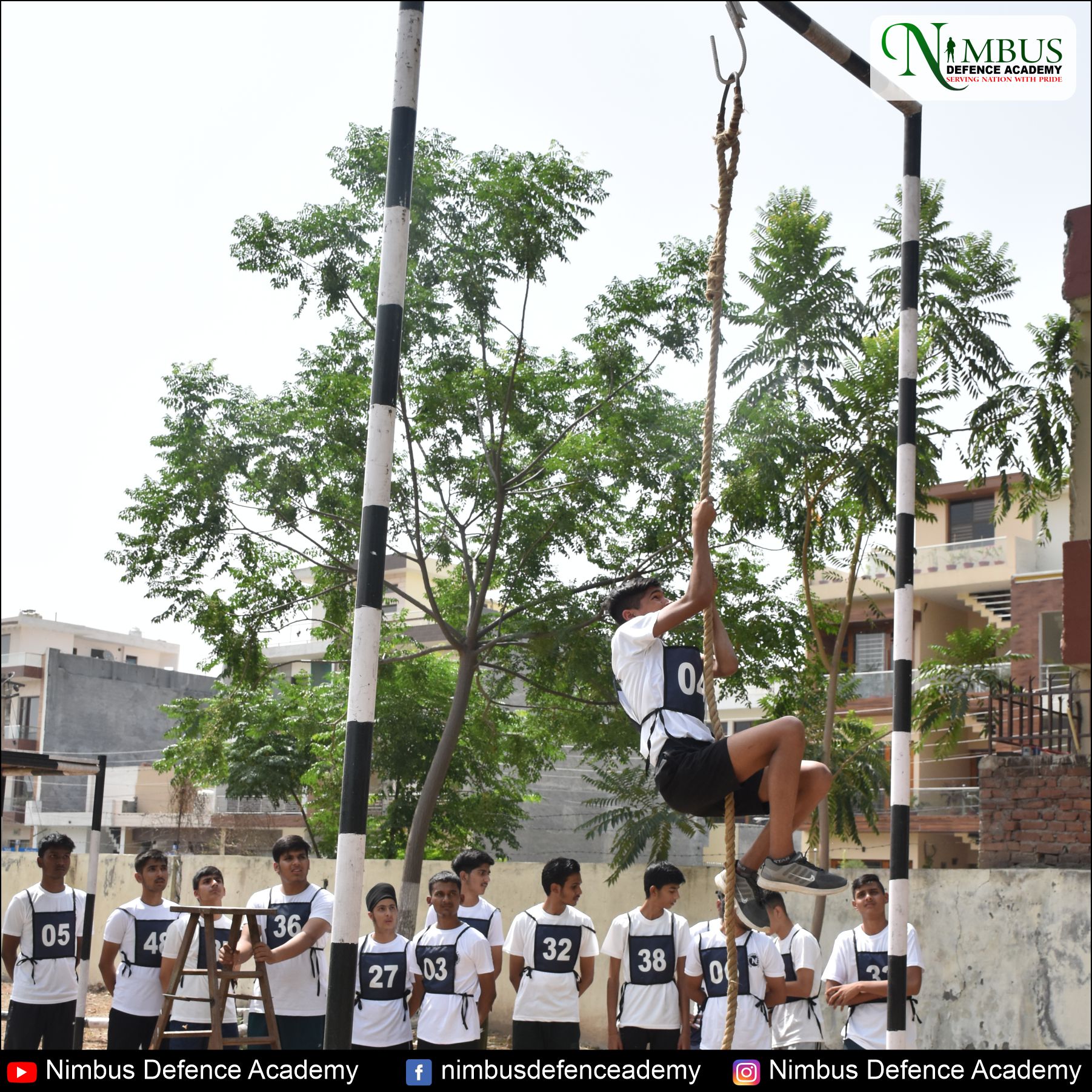
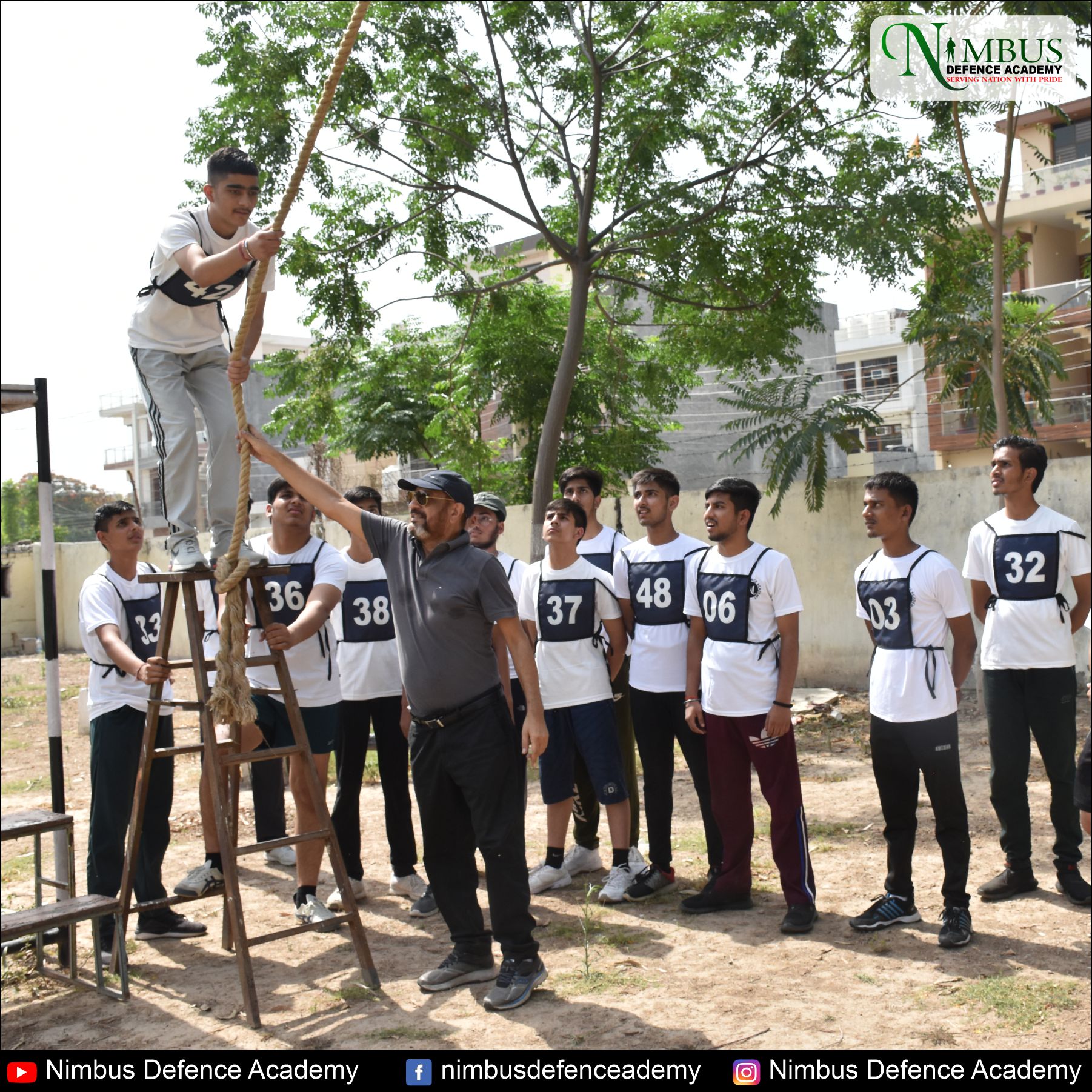
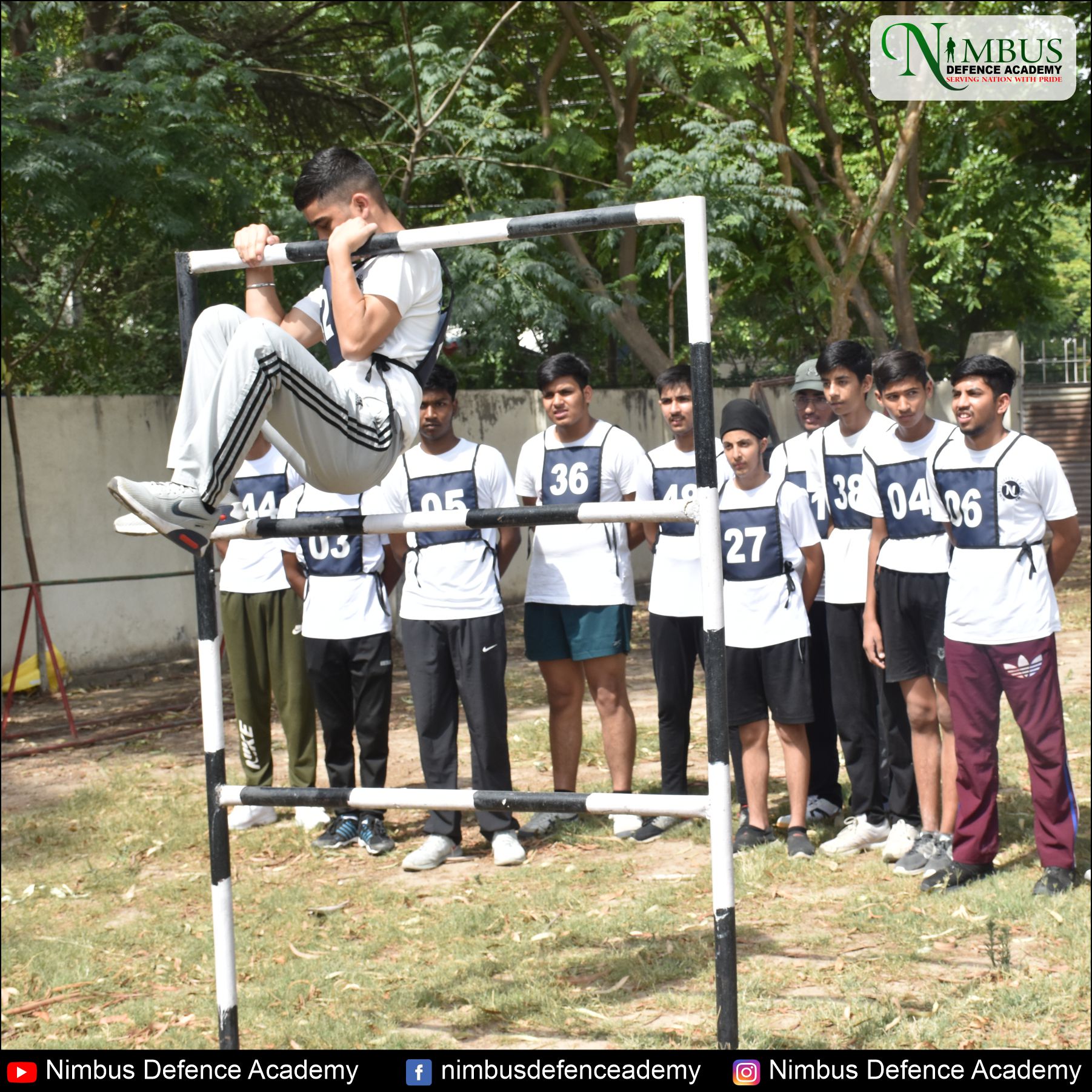
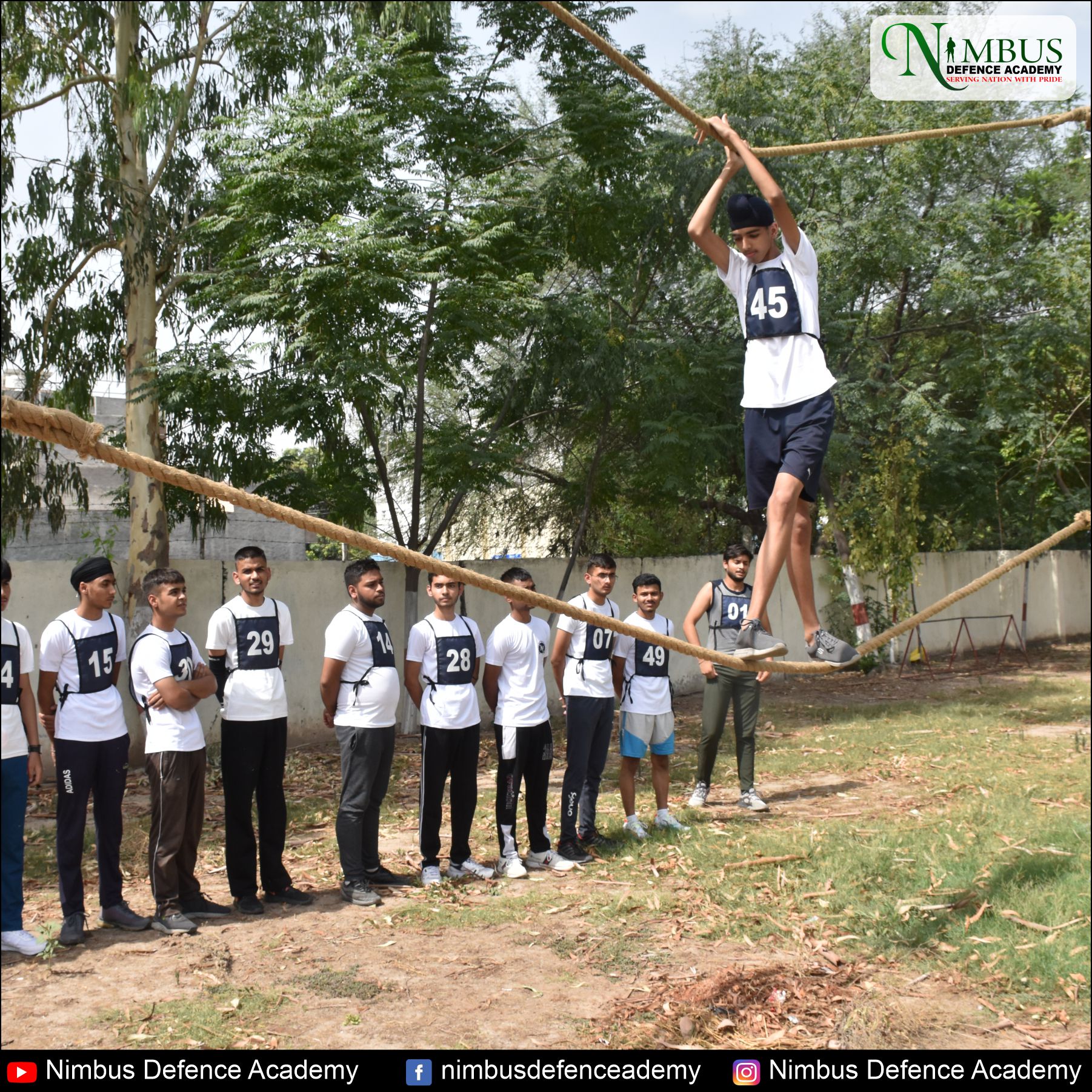
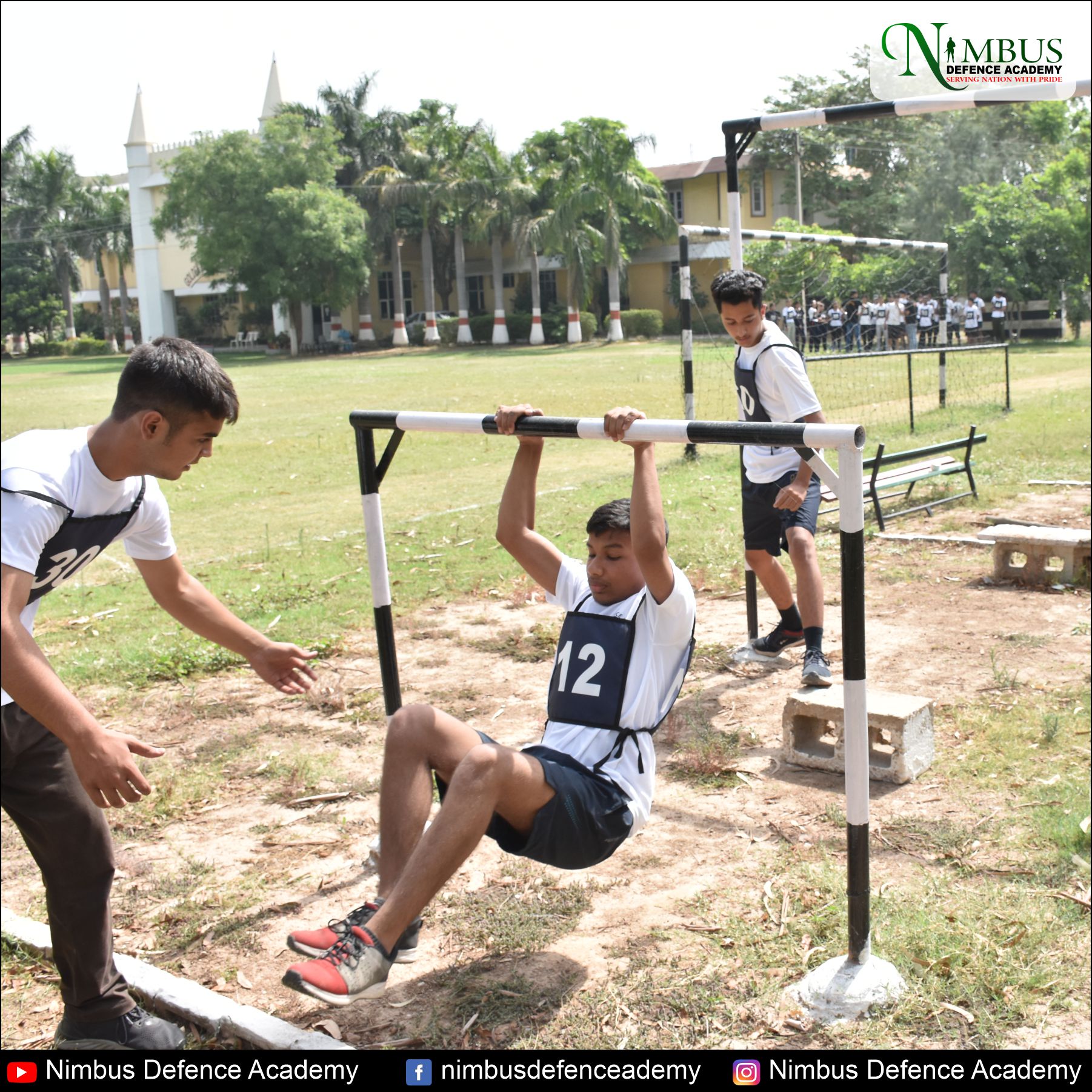
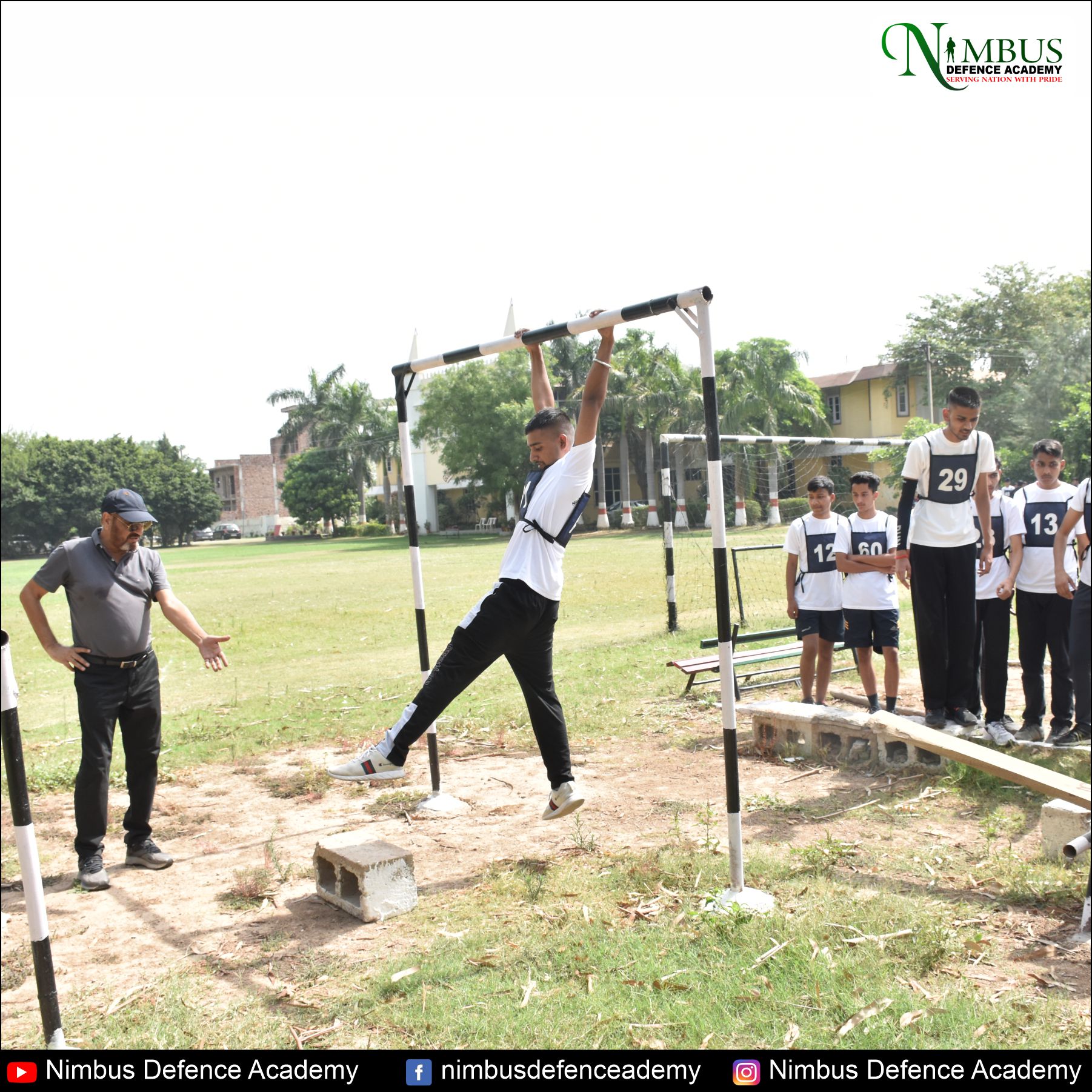
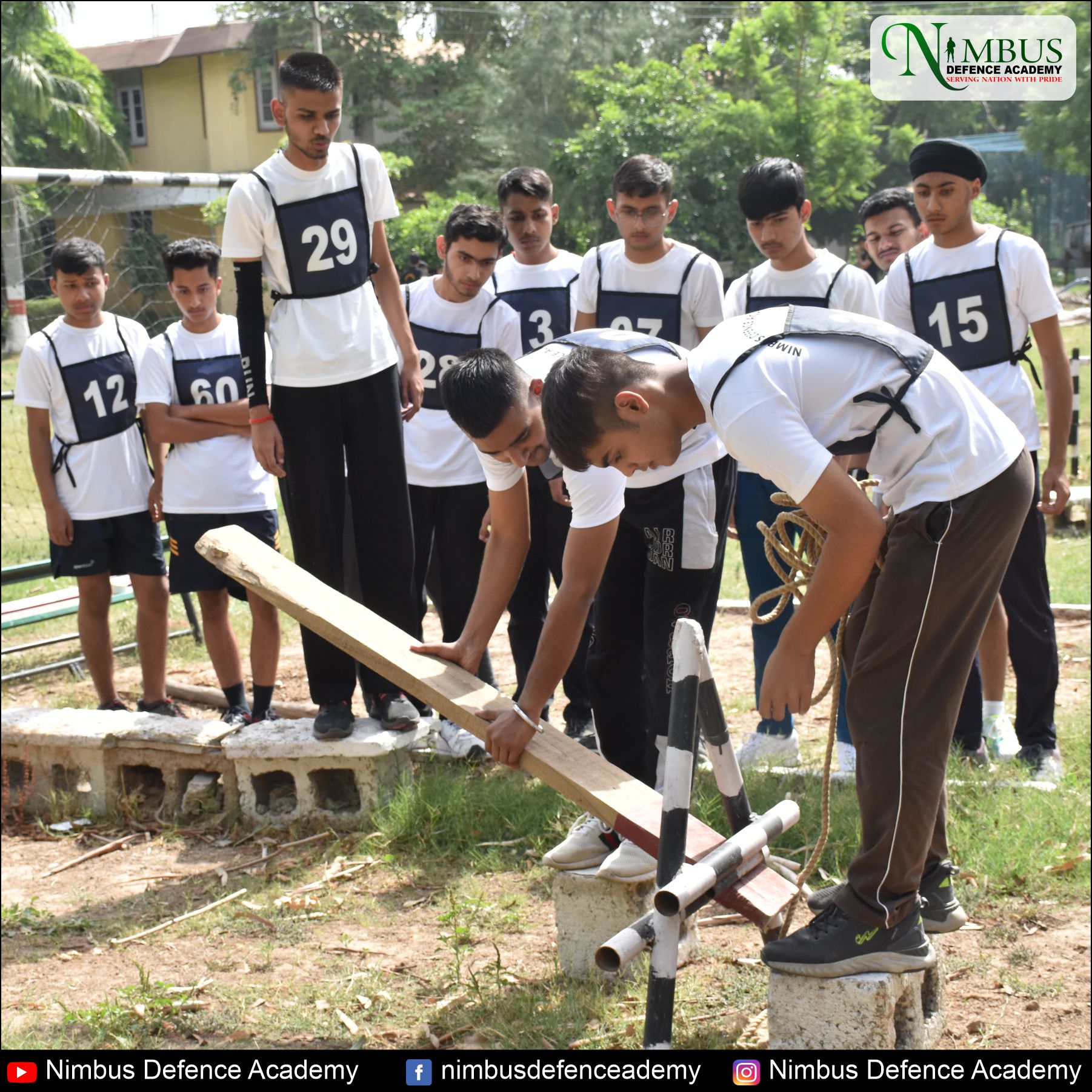
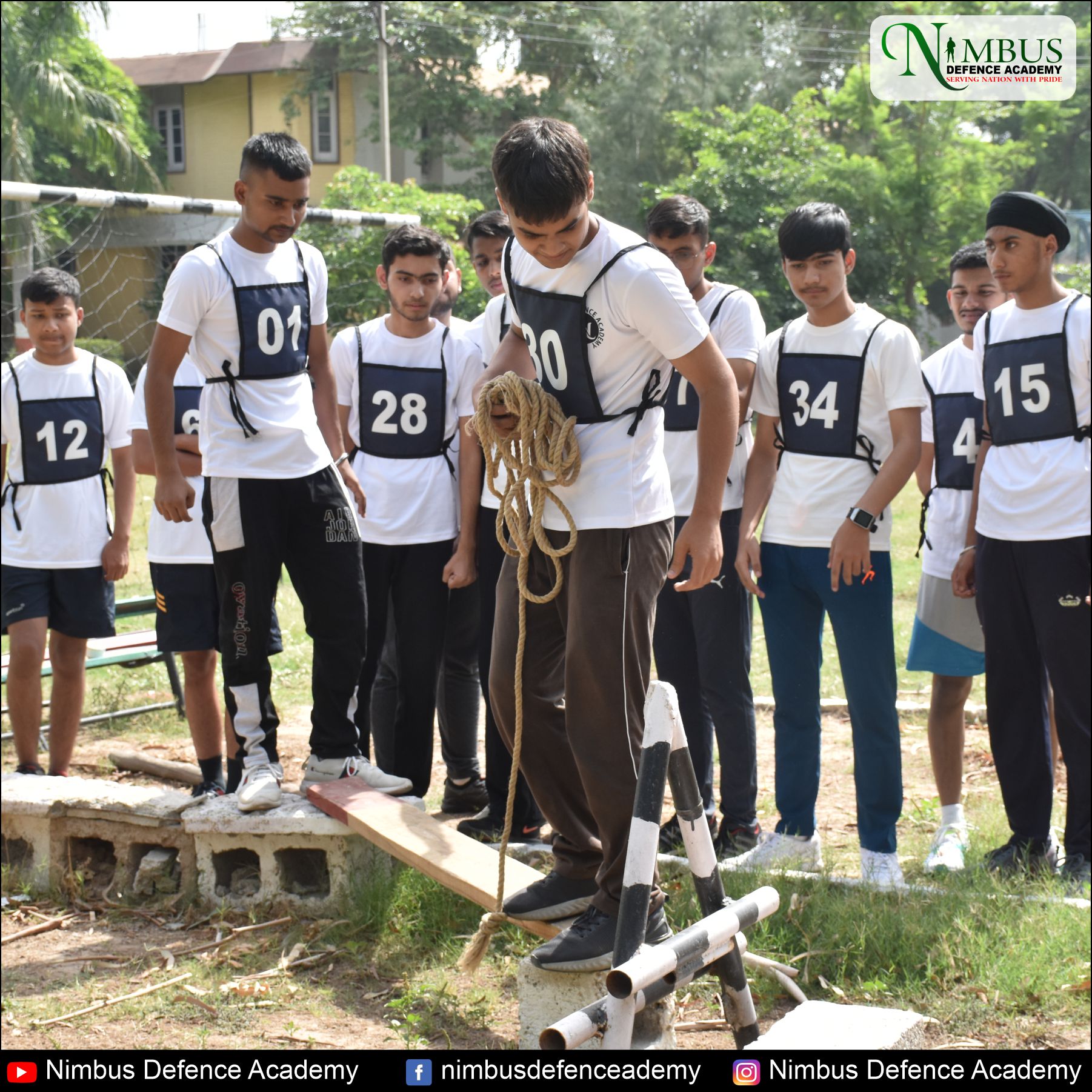
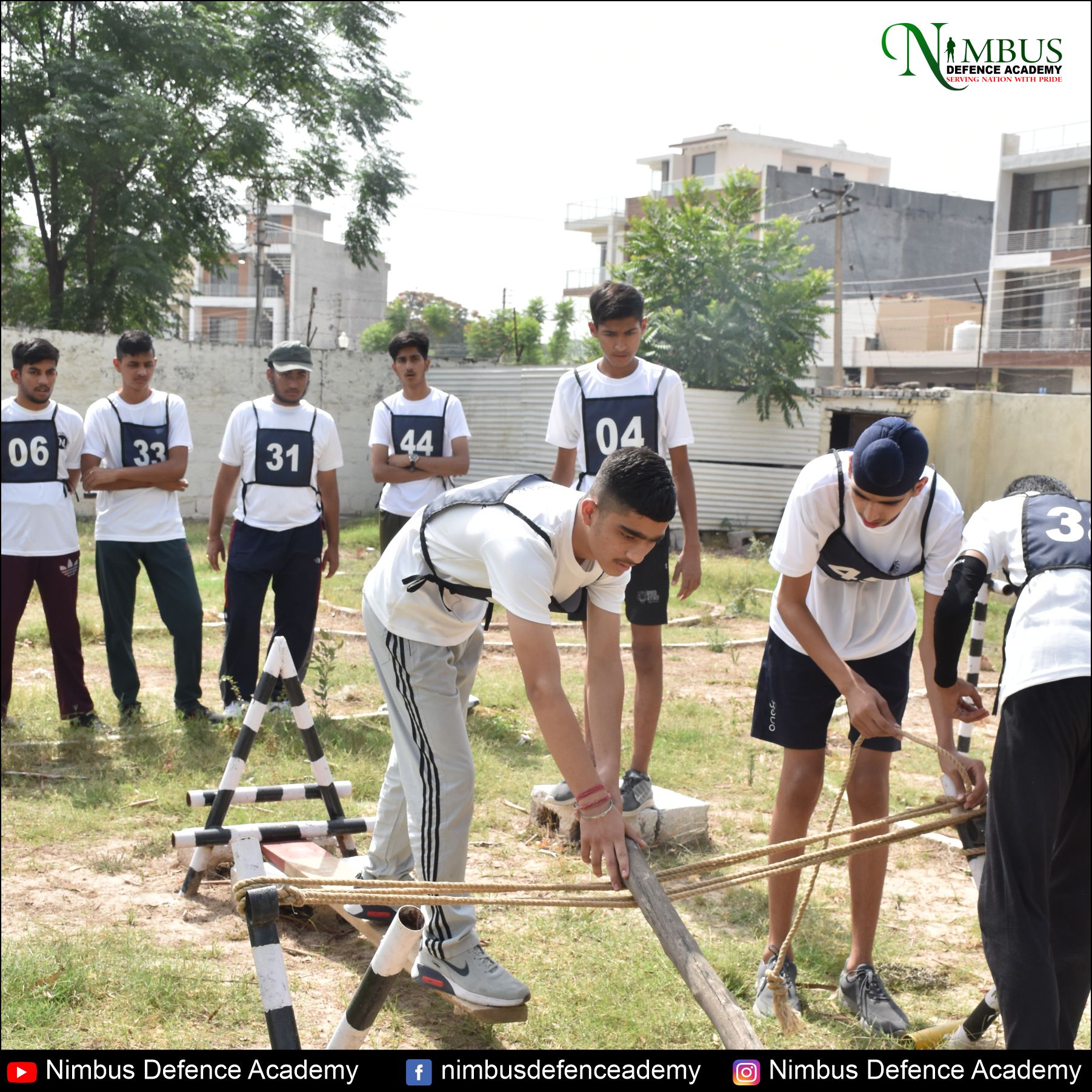
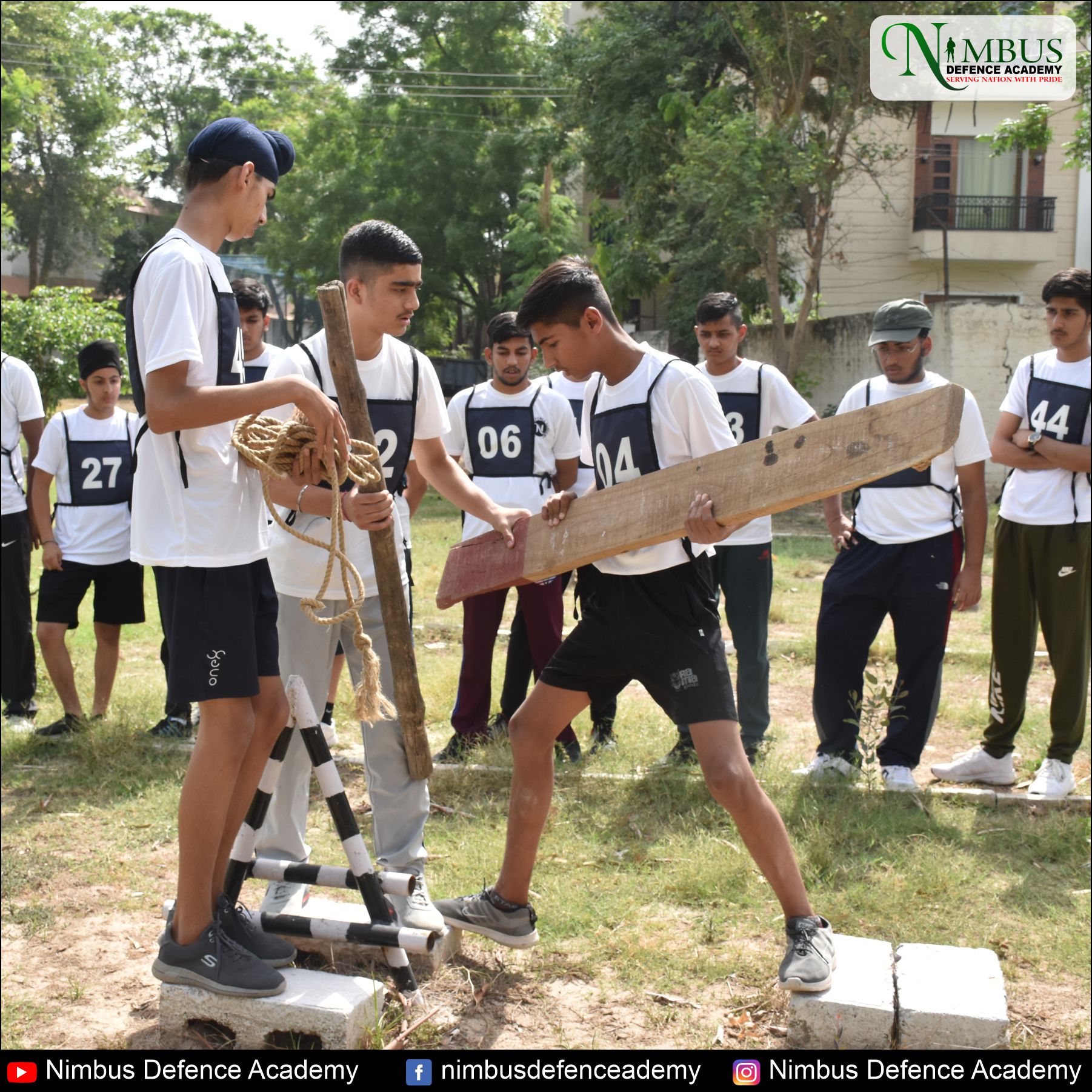
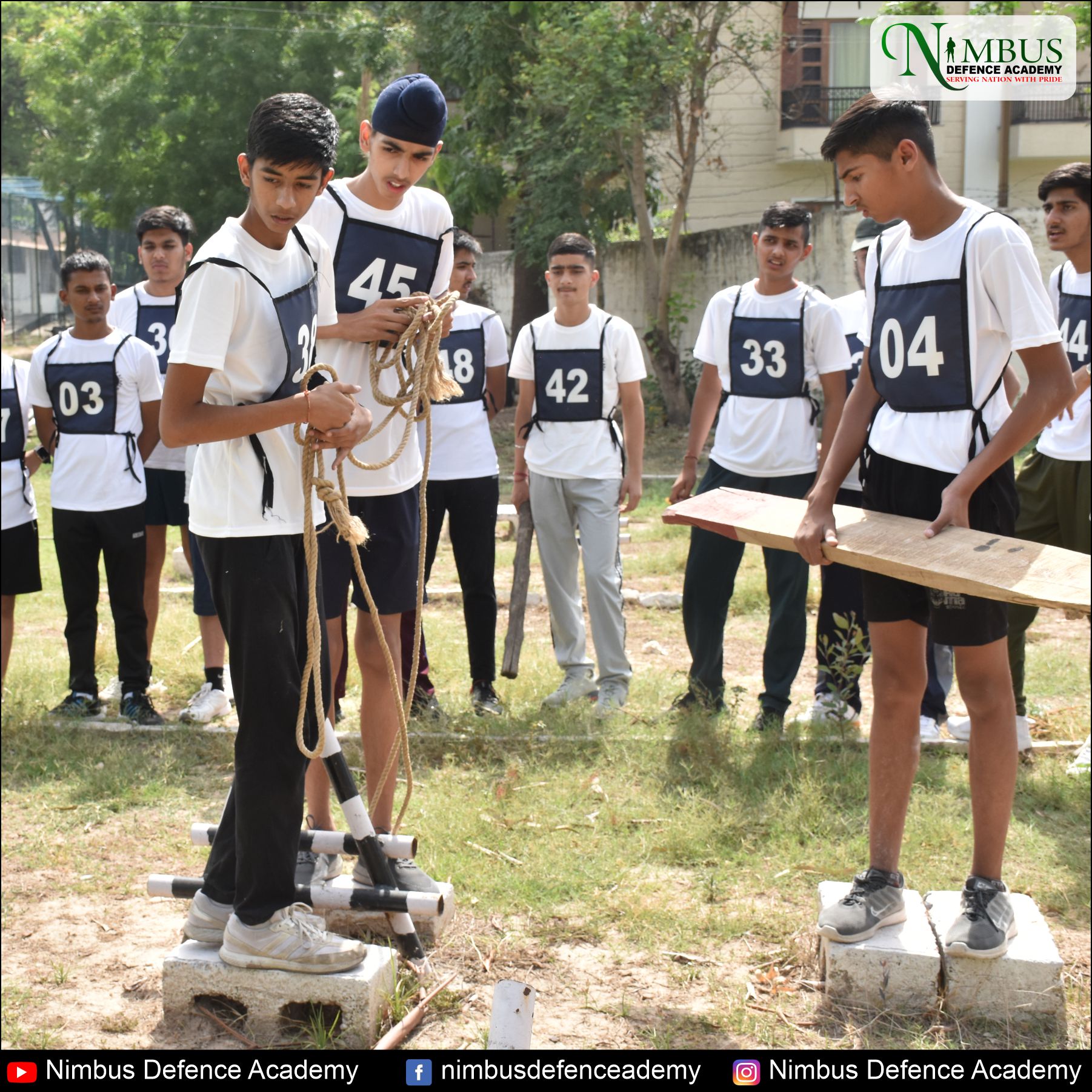
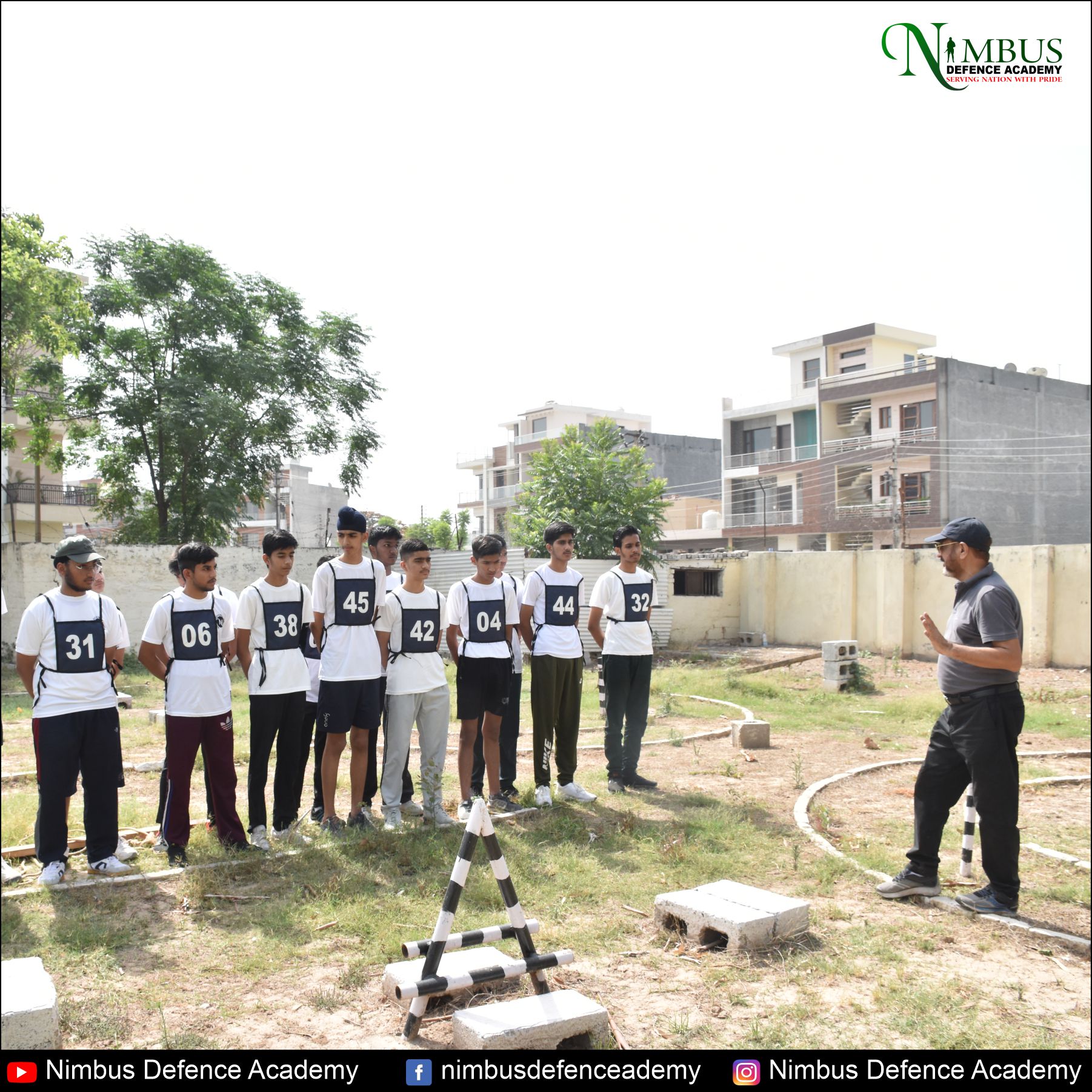
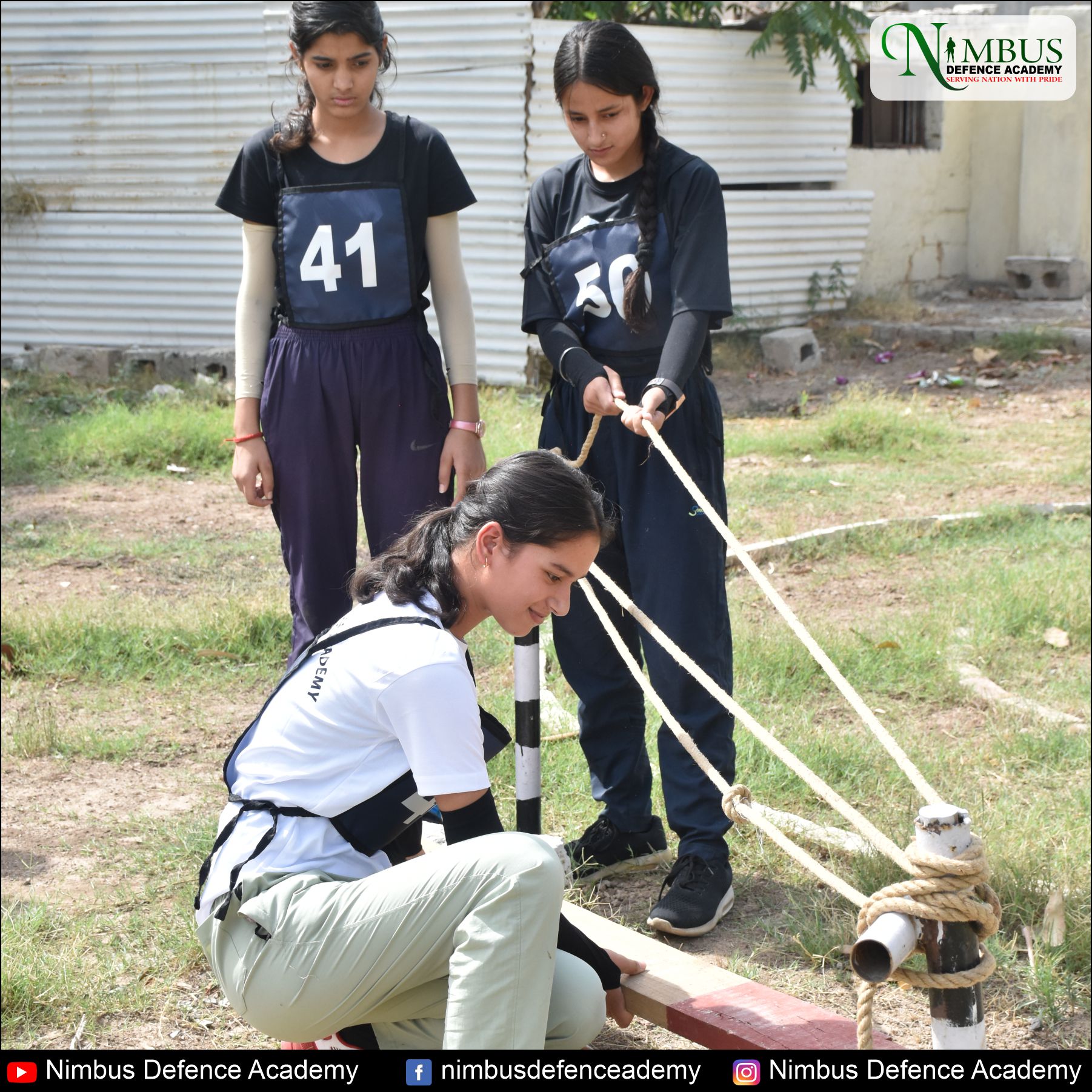
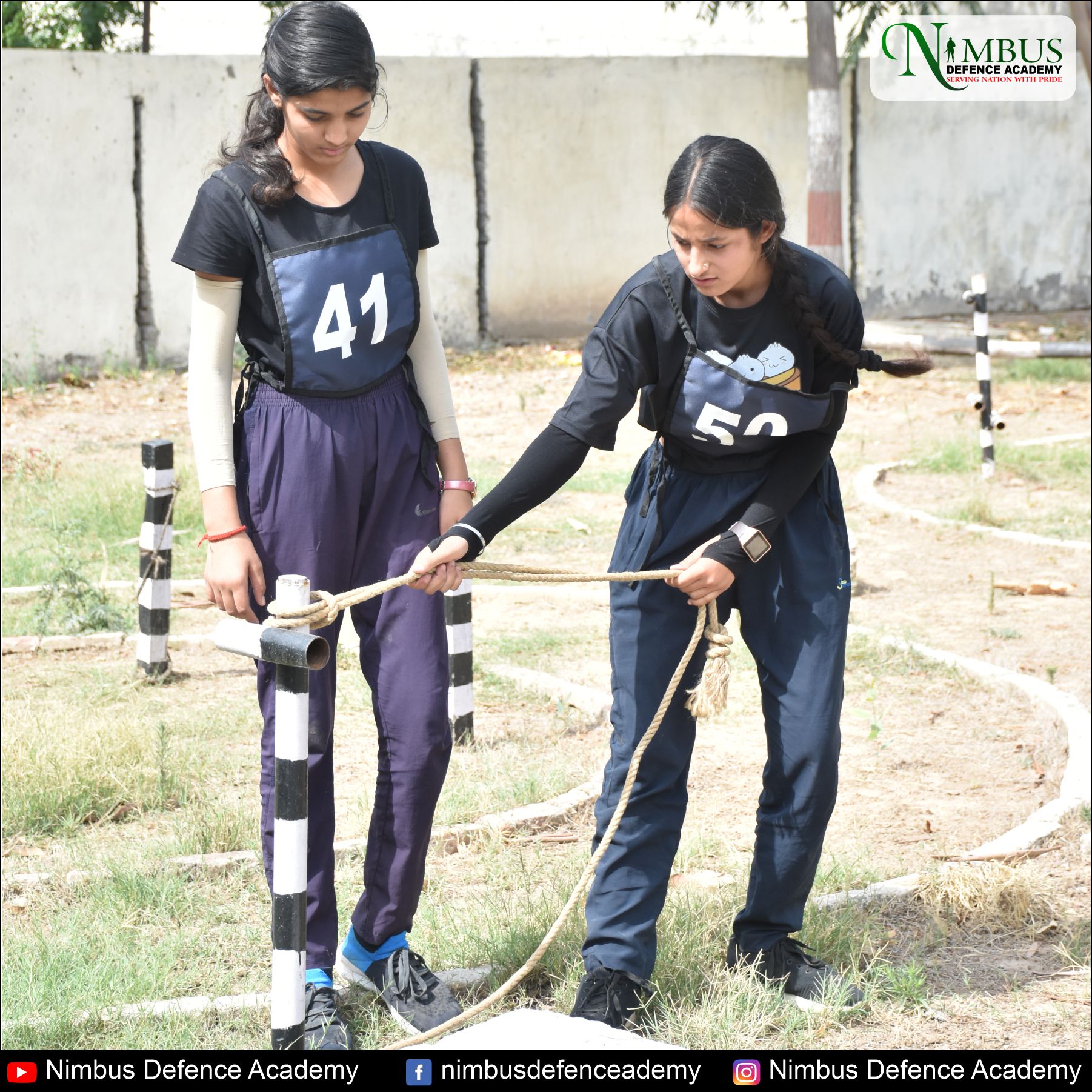
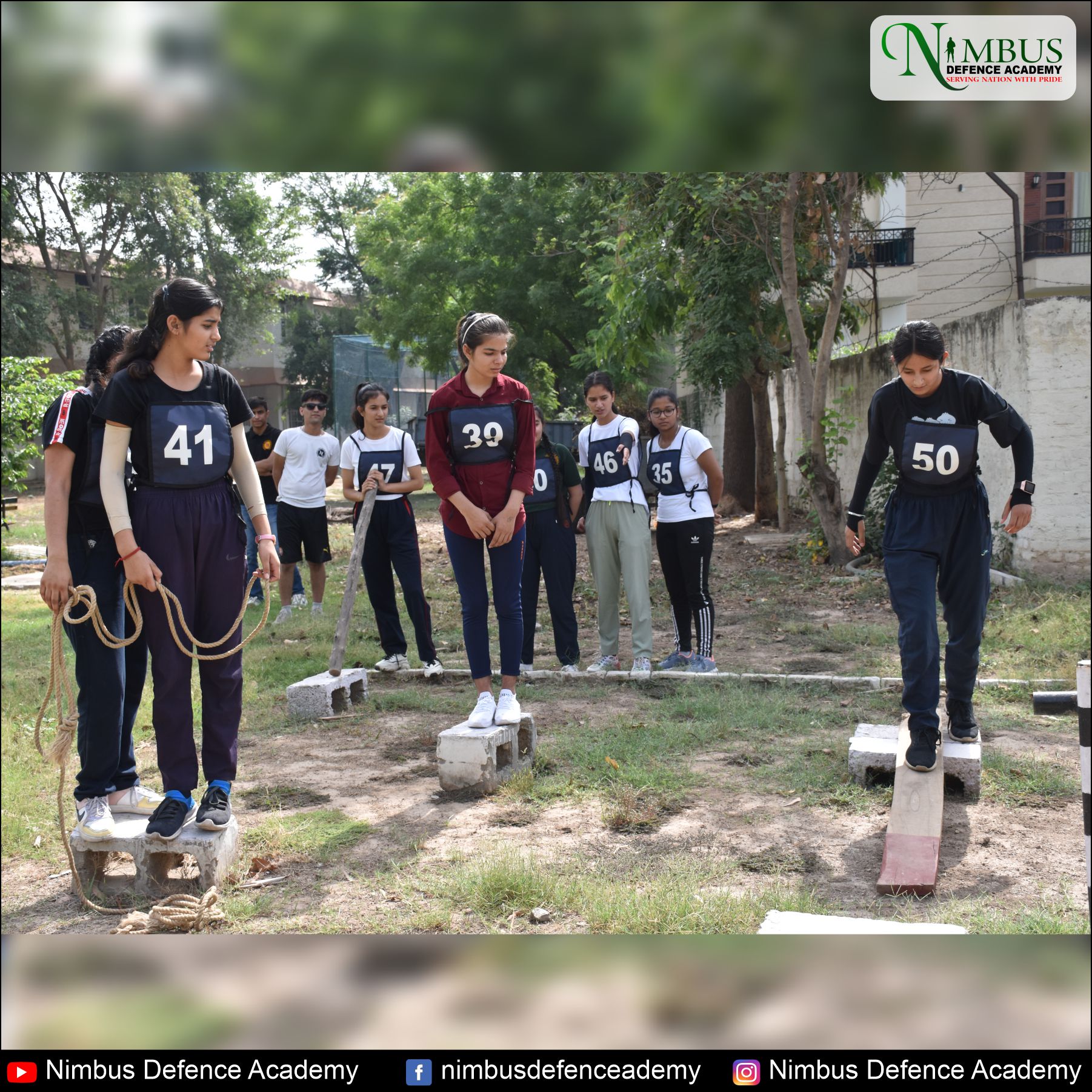
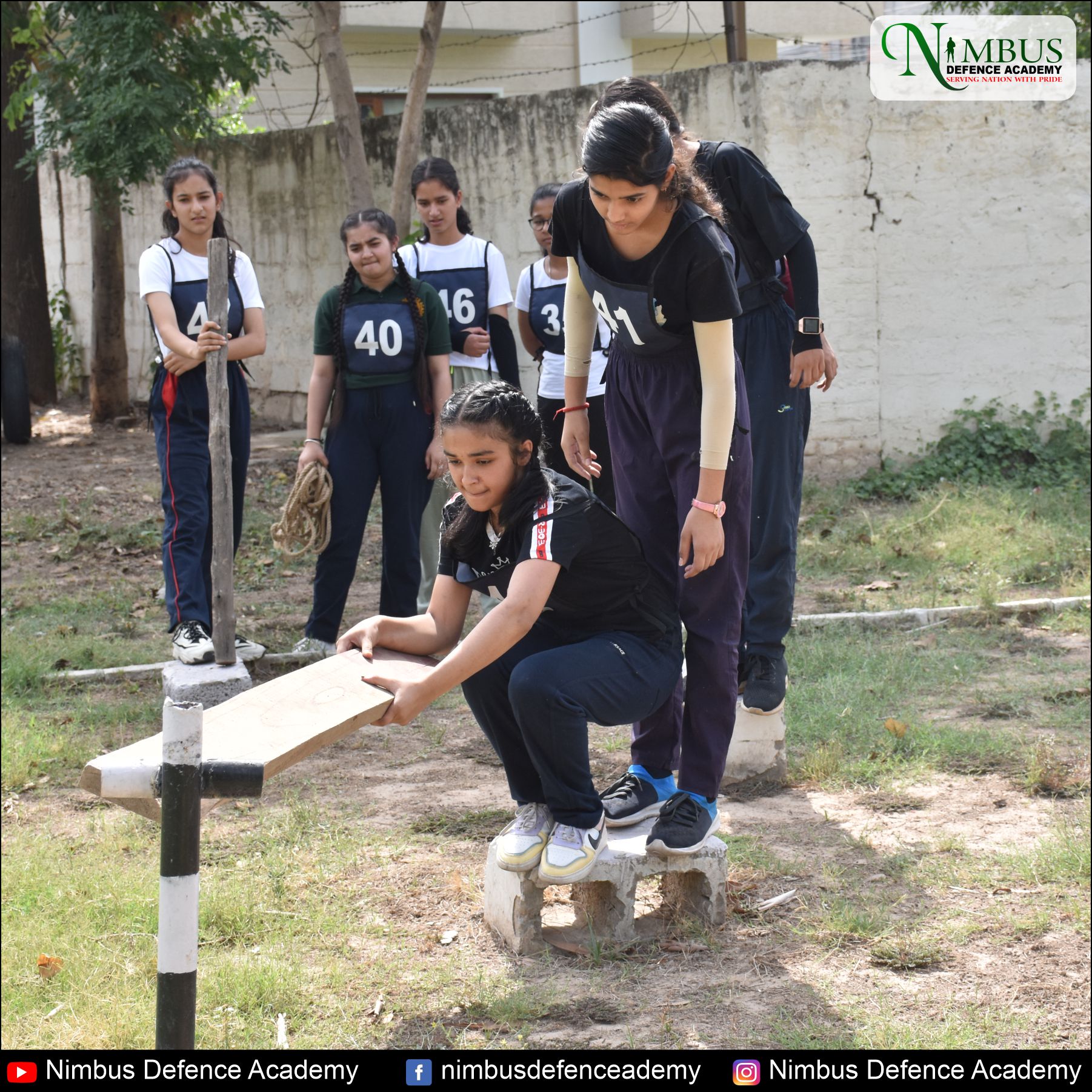
OUR TEAM FOR SSB INTERVIEW
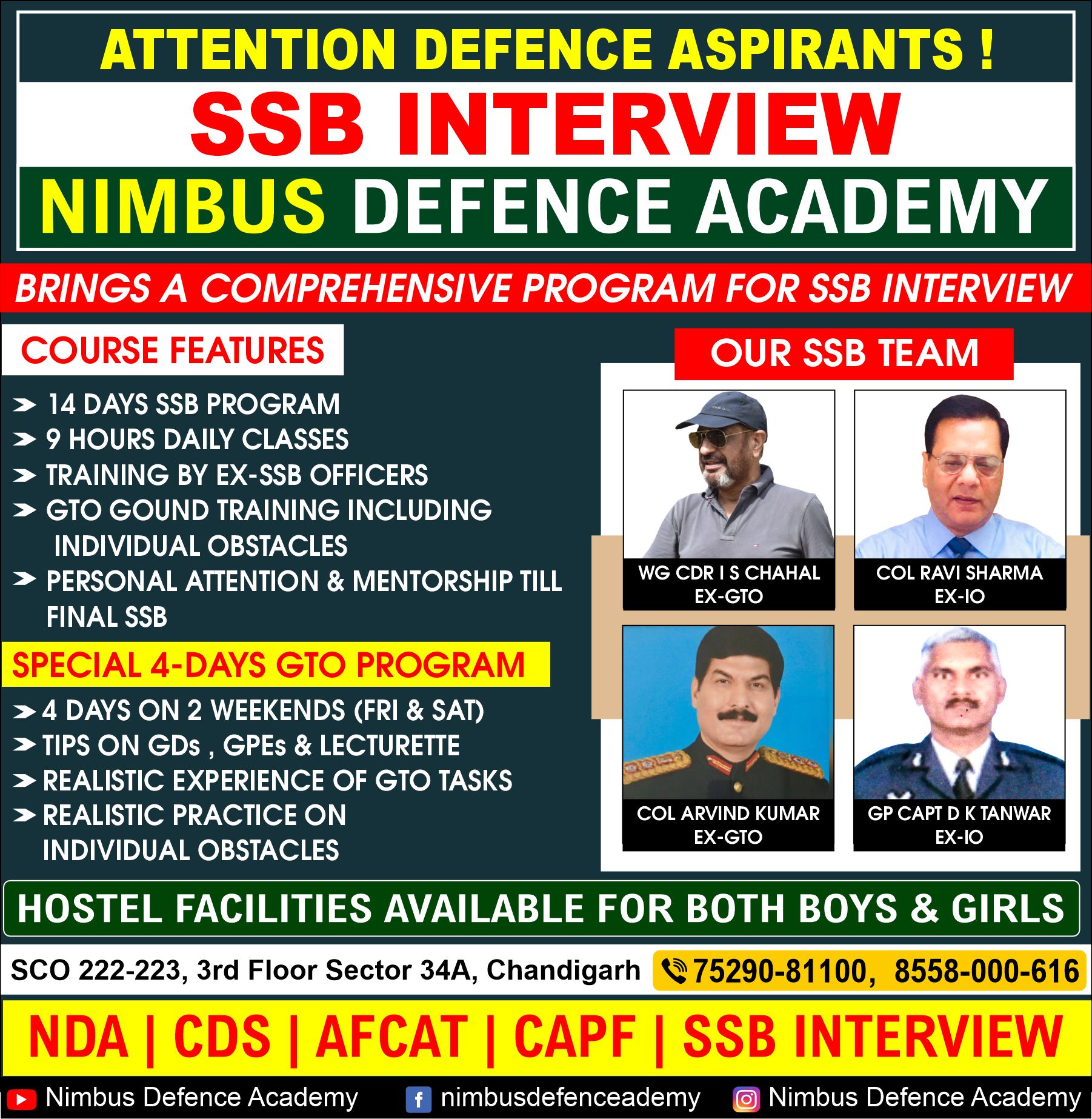
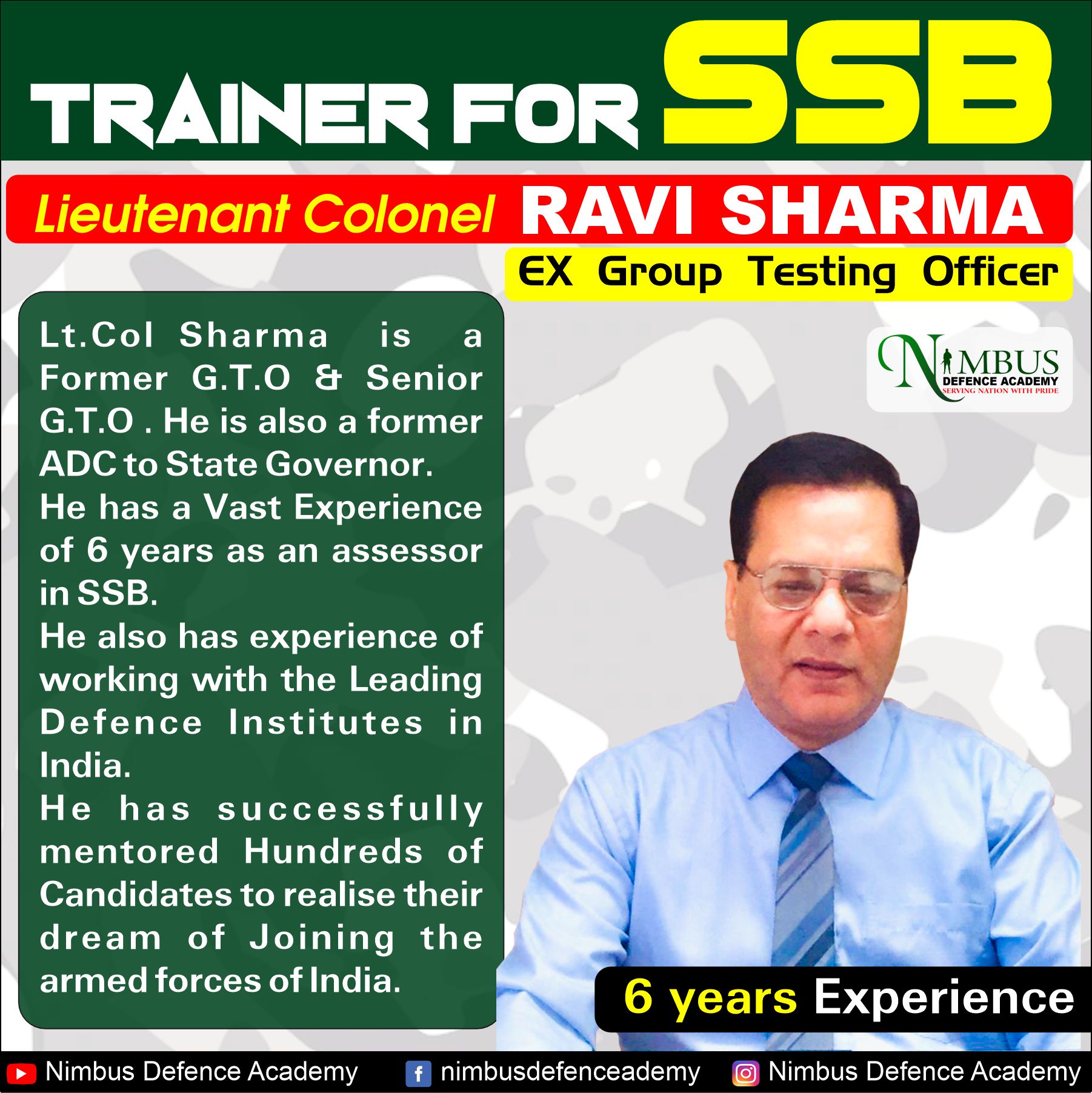
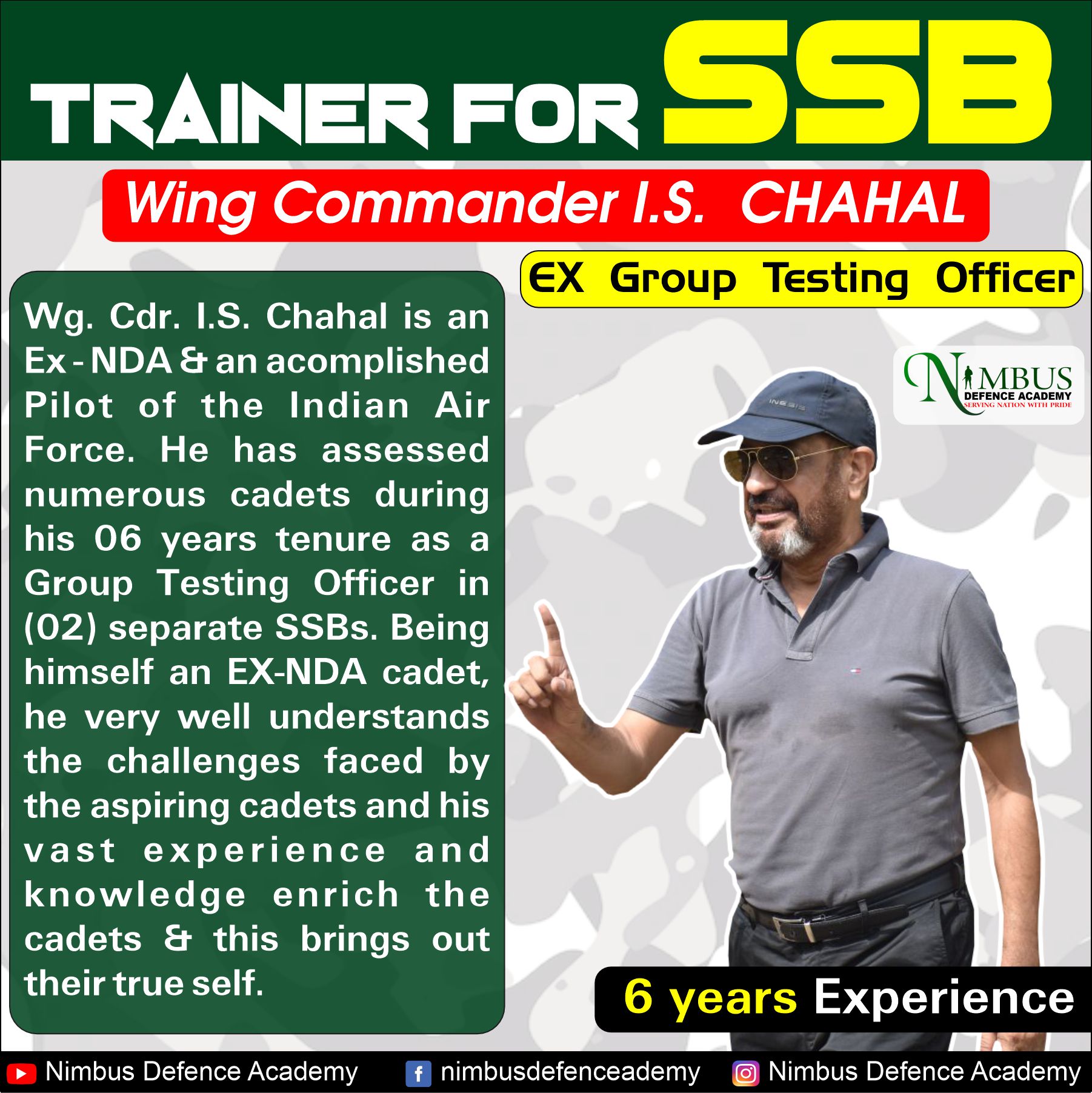
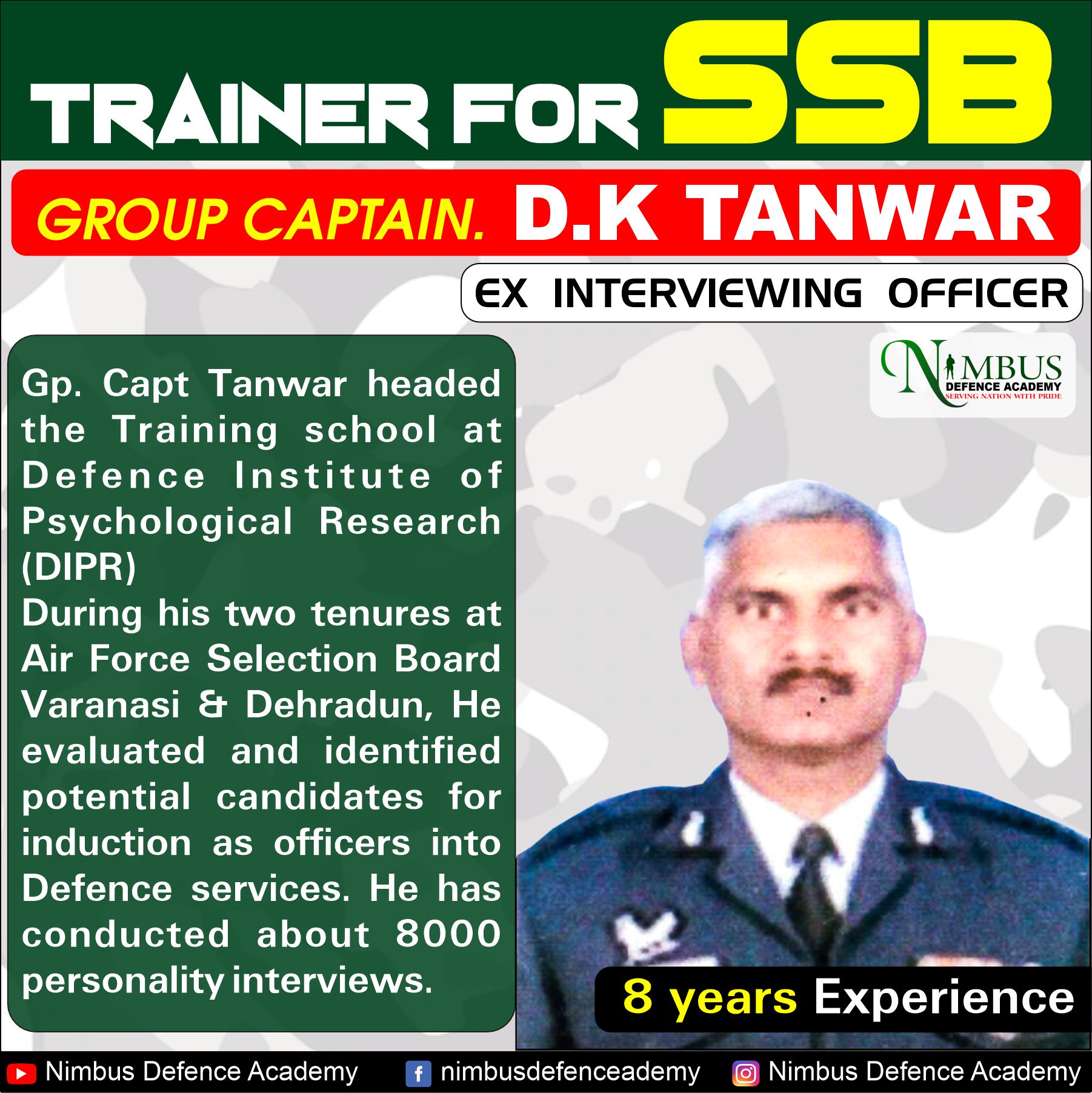
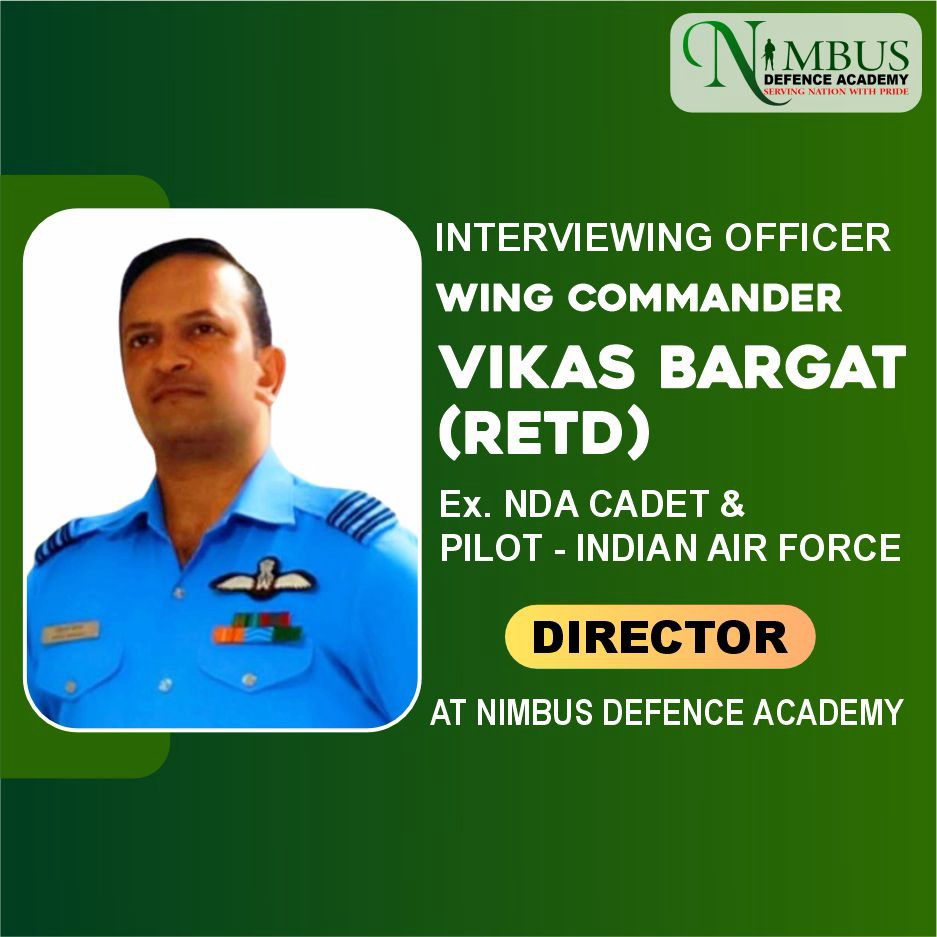
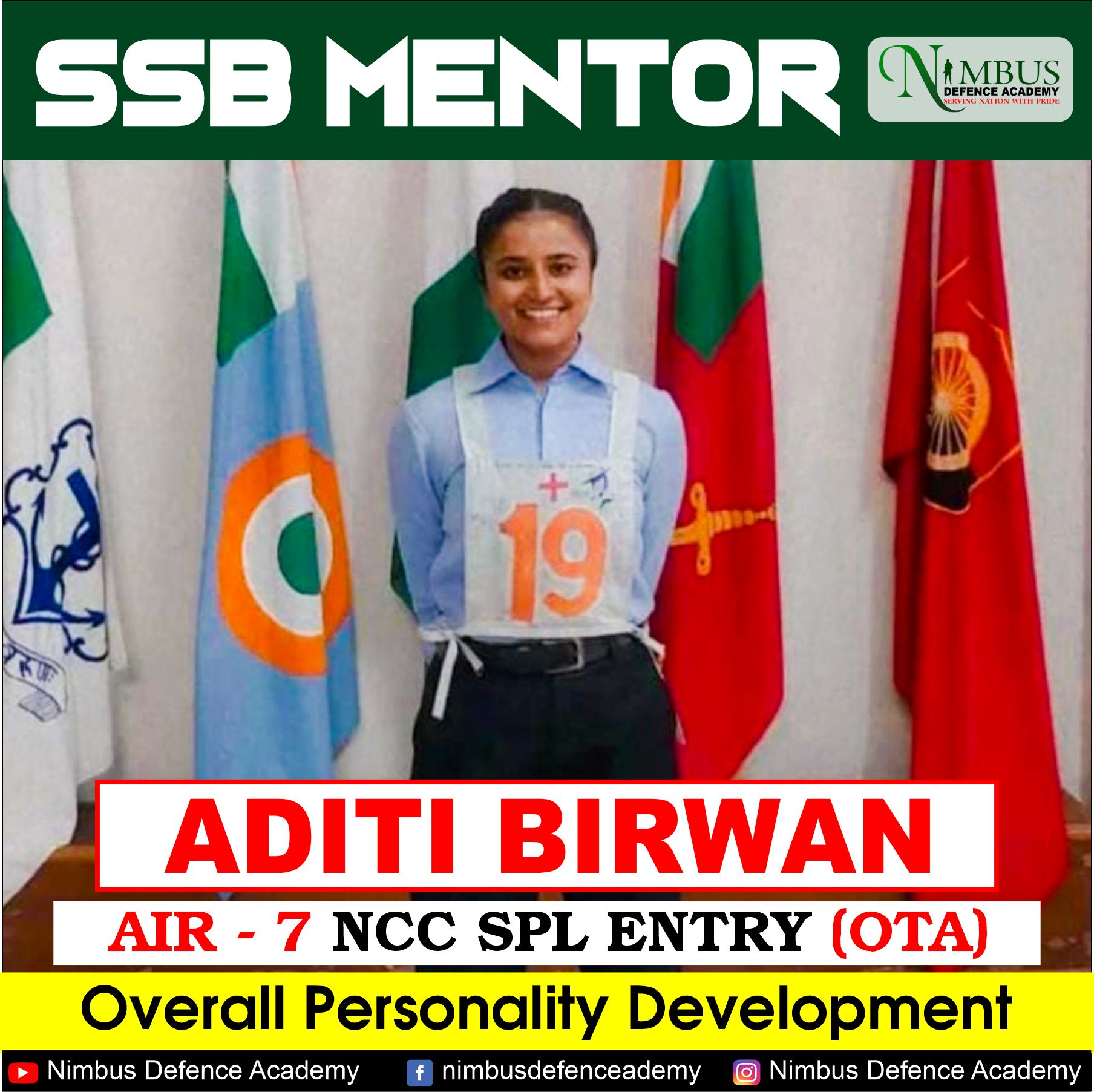
COURSE FEATURES
OFFLINE MODE
- 14 DAYS SSB Coaching Program in Offline mode
- Excellent Infrastructure with an Indoor air-conditioned environment
- Outdoor GTO training ground with the latest structures for PGT, HGT, FGT, etc
- Facility for audio-visual presentation method of teaching
- 9 hours of constructive offline classes from 09:00 hrs to 18:00 hrs
- Study material, practice tests, and assignments for candidates
- Mentoring by experienced EX-GTOs, EX-Interviewing officers of SSB BOARDS, and experienced Psychologists
- A wholesome feedback by experienced assessors after every task
- Doubt clearing sessions and hand-holding till SSB Interview
ONLINE MODE
- 30 DAYS SSB Coaching Program in online mode with Zoom
- Excellent Infrastructure with the audio-visual presentation teaching method
- 2 hours daily constructive online classes
- Study material, practice tests, and assignments for candidates
- Mentoring by experienced EX-GTOs, EX-Interviewing officers of SSB Boards, and Experienced Psychologists
- A wholesome feedback by experienced assessors after every task
- Doubt clearing sessions and hand-holding till SSB Interview

OUR PHILOSOPHY
Our training is based on the fundamental belief that every student has the potential to succeed. We focus on students as individuals, providing them with the support they need to reach their full potential.
Years of experience in this field of grooming students for the Defence Forces, especially through our dedicated SSB coaching in Chandigarh, we’ve learned that the best results come from adjusting our training to each individual’s unique background, skills, strengths, weaknesses, etc, and setting their level for appearing in their choice of examination. Our trainers empower students through personalised training and support, helping them develop the skills and confidence they need to succeed.
Throughout our Competency-Based training, we continuously assess and evaluate students’ progress—not only through scheduled testing but during their entire training. This helps us understand where our students excel and where they need additional guidance.
Our team includes Experienced assessors who have been part of various Selection Boards with years of experience in the field of assessing candidates. Our team also includes SSB Recommended candidates who share their experience and strategy that help new students in relating with their own strategies and improve their performance.
We set clear goals and inspire our students to work hard in every situation while recognizing that mistakes are an integral part of the learning process. Our students and staff work together to transform mistakes into development.
We train our students in an Inclusive and Realistic Environment characterised by consideration and mutual respect. In every aspect of training, we practice well for all the tests.

SSB INTERVIEW COMPLETE PROCESS

SSB Interview comprises 5 Days in which a candidate undergoes 2 stages. The stages are
1. Stage-1 : SCREENING TEST
It further comprises of 2 sub-stages
a) O.I.R - Officers Intelligence Rating (Verbal & Non-verbal test)
In this test, a candidate's ability to solve mathematical problems, categorised into verbal and non-verbal reasoning tests is tested. The question booklet is prepared by DIPR(DEFENCE INSTITUTE OF PSYCHOLOGICAL RESEARCH). As per the candidate's performance, they are given OIR rating 1,2,3...so on with OIR 1 being the highest.
b) PPDT - Picture Perception and Discussion Test
This is a test of imagination and observation. In this test, a picture is shown to the candidates for 30 seconds on a screen and they are required to write a story on that picture in 4 minutes. After this candidates are subdivided into small groups for the DISCUSSION test. In this, each candidate narrates his/her own story to the group and after the individual narration, group discussion begins to come to a common GROUP STORY.
2. Stage-2
This stage consists of 3 testing techniques and a Board Conference on the 5th day. The tests are
a) Psychological Tests - They comprise 4 tests which are
1. TAT - Thematic Apperception Test
In TAT, candidates are shown 12 pictures including 1 blank picture, for 30 seconds each and 4 minutes are provided to write a story on that picture. The difference between PPDT and TAT is that in TAT, 12 pictures are shown one after another, and a discussion test does not take place. The 12th picture is a blank picture in which a candidate can write his/her own story of choice.
2. WAT - Word Association Test
In this test, candidates are shown 60 words one after another for 15 seconds each. They are required to associate that word with a sentence and write that within 15 seconds after seeing the word.
3. SRT - Situation Reaction Test
This test comprises 60 situations which are provided in a question booklet. The time given for this test is 30 minutes and the candidate is required to write his/her response to that situation.
4. SD - Self Description
Self-Description requires a candidate to describe himself/herself according to his/her opinion and society's opinion in paragraph form. It comprises of 5 main parameters :
- Parent’s Opinion
- Teachers/Senior’s Opinion
- Friends/Classmate’s Opinion
- Own Opinion
- What kind of person do I want to become?
b) PERSONAL INTERVIEW
The personal interview is a one-to-one interaction between the assessor and the candidate. The main purpose of this technique is to understand a candidate much deeper, which becomes impossible during a written examination. The interview revolves around a form known as PIQ(Personal Information Questionnaire) which is provided to the candidate before going for the personal interview.
c) G.T.O
GTO stands for Group Testing Officer which assesses you not individually but in a group, unlike the other two tests. It includes a total of 9 tests that are conducted outdoors. It takes place over a period of 2 days on Day 3 and Day 4 consecutively. The tests are –
1. GD - Group Discussion
It is the first test in the G.T.O series. In these 2 Group Discussions, each of around 15-20 minutes takes place. The 1st GD topic is of the candidate’s choice but the 2nd GD topic is of the assessor's choice.
2. GPE - Group Planning Exercise
It is also known as MILITARY PLANNING EXERCISE. In this, a wooden board-like structure called a map is placed in front of a group of candidates and a story is narrated to the group by GTO. The story involves a group of people encountering 4-5 problems simultaneously. For 5 minutes, a story card is given to each student after the common briefing of the story. 10 minutes are provided to the students to write their individual plans of solving the problems simultaneously using the resources available. After this discussion test takes place and the candidates are required to arrive at a common group plan. Then one candidate from a group is nominated to give the common group plan to the GTO.
3. PGT - Progressive Group Task
In this task, the group of candidates will get 35-40 minutes to solve some structures on the ground using available resources like plank, balli, rope, load, etc. There are 4 levels of obstacles having their difficulty level in ascending order. The group needs to cross all the obstacles together without breaking any rules
4. HGT - Half Group Task
This task is similar to PGT except for the fact that the main group gets divided into 2 subgroups and they have to solve only 1 obstacle instead of 4.
5. GOR - Group Obstacle Race/Snake Race
In this task, a cloth-like structure in the shape of a "snake"(that's why the name SNAKE Race) has to be carried by the group of candidates and cross the obstacles in front of them. They need to abide by some rules in this task.
6. Lecturette
In this a candidate will get 3 minutes to prepare before delivering their Lecturette speech for 3 minutes in front of GTO and his/her group. The topic will be chosen by the candidate from a total of 4 topics displayed on a card, which candidate randomly picks up from the table.
7. Command Task
In the command task, you'll be made the Commander and with the help of 2 subordinates from your group and the helping material (plank, balli, rope, load, etc), you've to complete the obstacle in front of you. The time for this task is approx. 15 minutes.
8. Individual Obstacle Task
This task consists of 10 obstacles that need to be completed by the candidate within 3 minutes. He/She can repeat the tasks once all the 10 obstacles have been completed once.
9. FGT - Final Group Task
The last task of the GTO series. It is a reflection of PGT but only 1 obstacle needs to be completed by the whole group within the time limits using the resources available.
d) BOARD CONFERENCE
It’s the last activity that takes place in the 5-Day SSB procedure. After you’ve undergone all the testing techniques, you go for the final Board Conference. This is like a “MINI-INTERVIEW” where each candidate is called inside a room, where all the assessors including the Board President & Deputy President are present. The candidate is asked some basic questions regarding his 5 days experience and his/her life. After the board conference, final results are announced.
NOTE: The candidates who get selected/recommended are required to stay at the respective SSB Centre for further documentation and medical procedure whereas the candidates who don’t make it are routed back home.
SSB CENTRES
For INDIAN AIR FORCE :
- 1 AFSB DEHRADUN, UTTARAKHAND
- 2 AFSB MYSORE, KARNATAKA
- 3 AFSB GANDHINAGAR, GUJARAT
- 4 AFSB VARANASI, UTTAR PRADESH
For INDIAN NAVY :
- NSB COIMBATORE, TAMIL NADU
- NSB BHOPAL, MADHYA PRADESH
- NSB BANGALORE, KARNATAKA
- NSB KOLKATA, WEST BENGAL
For INDIAN ARMY :
- SCN(Selection Centre North) KAPURTHALA, PUNJAB
- SCE(Selection Centre East) ALLAHABAD/PRAYAGRAJ, UTTAR PRADESH
- SCC(Selection Centre Central) BHOPAL, MADHYA PRADESH
- SCS(Selection Centre South) BANGALORE, KARNATAKA
VARIOUS SSB ENTRIES
1). NDA - National Defence Academy Exam (10+2 entry)
- Permanent commission in any of the wings - Airforce, Army, and Navy.
- Training for 3 years is given at the academy located at Khadakwasla, Pune.
2). TES - Technical Entry Scheme (10+2 entry)
- Permanent commission in the Indian army.
- Candidates who appeared for JEE Mains exam are only eligible for this entry.
- After 1 year of Basic military training at OTA Gaya, Bihar cadets are sent to their respective CTWs(Cadets Training wing) for further training. The 3 CTWs are in Mhow, Pune, and Secunderabad for different branches of military engineering.
3). Navy BTECH Entry(10+2 entry)
- Permanent Commission in Indian Navy
- Candidates who appeared for JEE Mains exam are only eligible for this entry.
- Training will be provided at Indian Naval Academy, Ezhimala, Kerala.
4). CDS - Combined Defence Service
- Combined test for entry to AFA, IMA, INA, and OTA after graduation.
- Permanent Commission
5). INET - Indian Navy Entrance Test
- Short-service commission in the Indian Navy after graduation.
- Training establishment is INA, Ezhimala.
6). JAG - Judge Advocate General
- Only applicable for law graduates going into the Indian Army.
- Candidates should be registered with the Bar Council of State/India.
7). NCC SPECIAL ENTRY
- For all the NCC Cadets having either 'A' or 'B'grade in the 'C' certificate exam with 50% marks in graduation.
- For the Indian Navy, B.E is required along with a C certificate.
- Training Establishments are AFA, INA, and OTA, Chennai.
8). SSC TECH - Short Service Commission Technical
- Short service commission in the Indian Army.
- All engineering graduates can apply.
- Training establishment is OTA, Chennai.
9). TGC - Technical Graduate Course
- For engineering graduates and post-graduates of MA/MSc.
- Commissioned in the Engineering or Education branch as per qualifications.
- Training establishment is IMA, DEHRADUN.
10). TA - Territorial Army
- A part-time service with 2 months of training in a year.
- Only for Indian citizens from age 18-42 years old.
11). ACC Entry
- For soldiers training from regular Army, Navy, and Air Force for commissioning as an officer in the Indian Army.
- A minimum of 2 years of service is required.
- A maximum of 3 chances are available for ACC Entry.
- Training establishment is ACC(Army Cadet College)Wing at IMA, Dehradun.
TRAINING ACADEMIES
- National Defence Academy, Khadakwasla, PUNE
- Indian Military Academy, Dehradun
- Indian Naval Academy, Ezhimala, Kerala
- Officers’ Training Academy, Chennai
- Officers’ Training Academy, Gaya, Bihar

